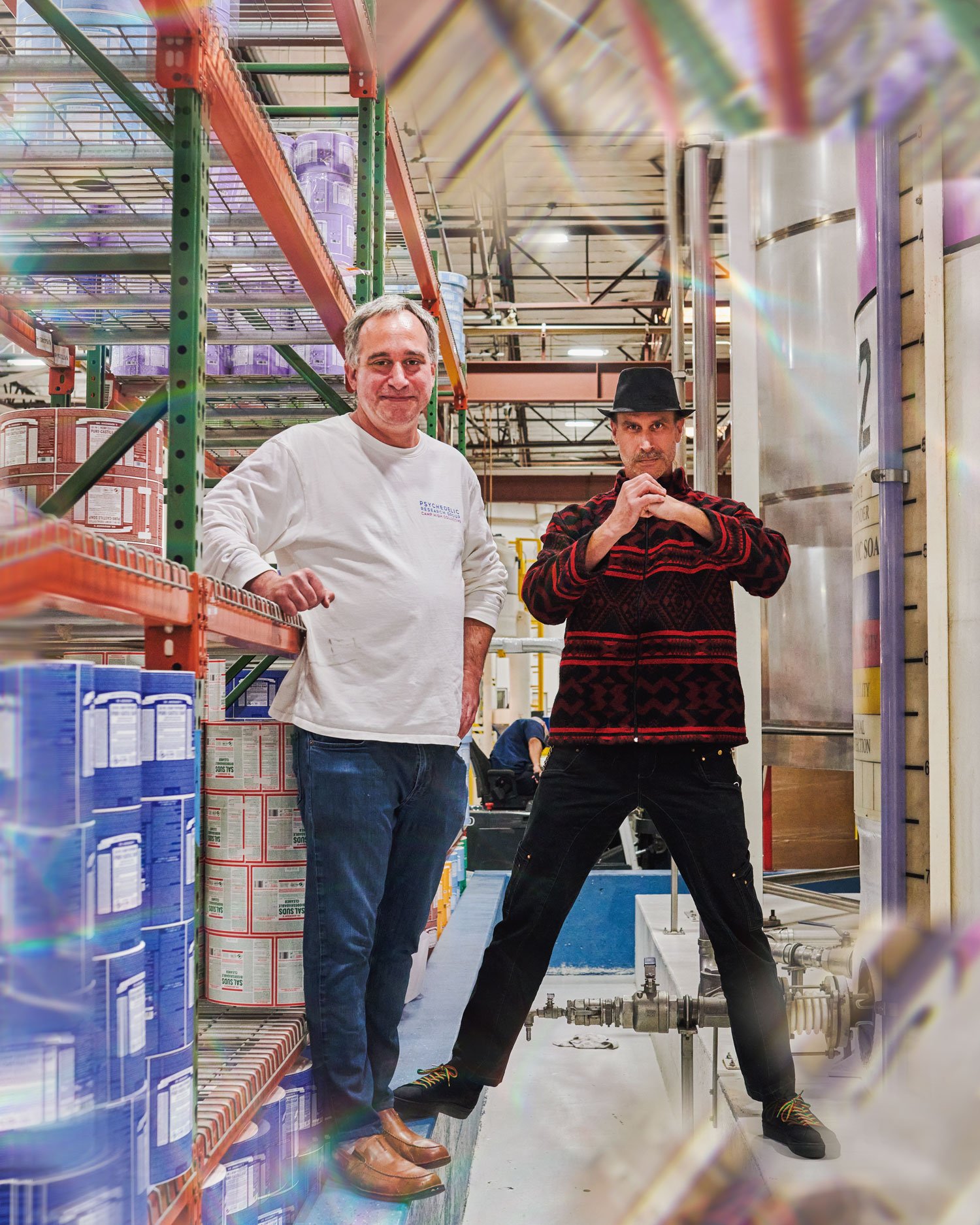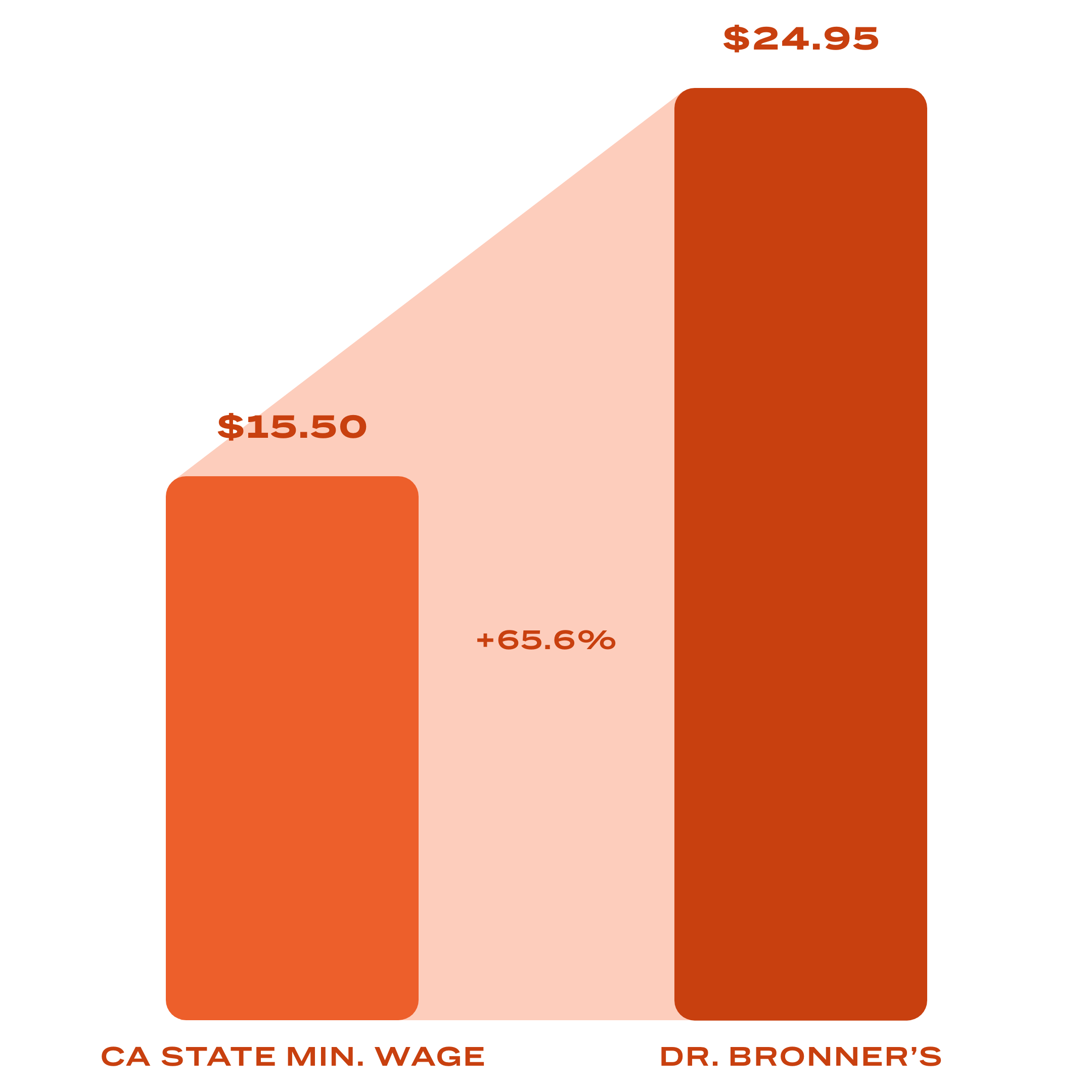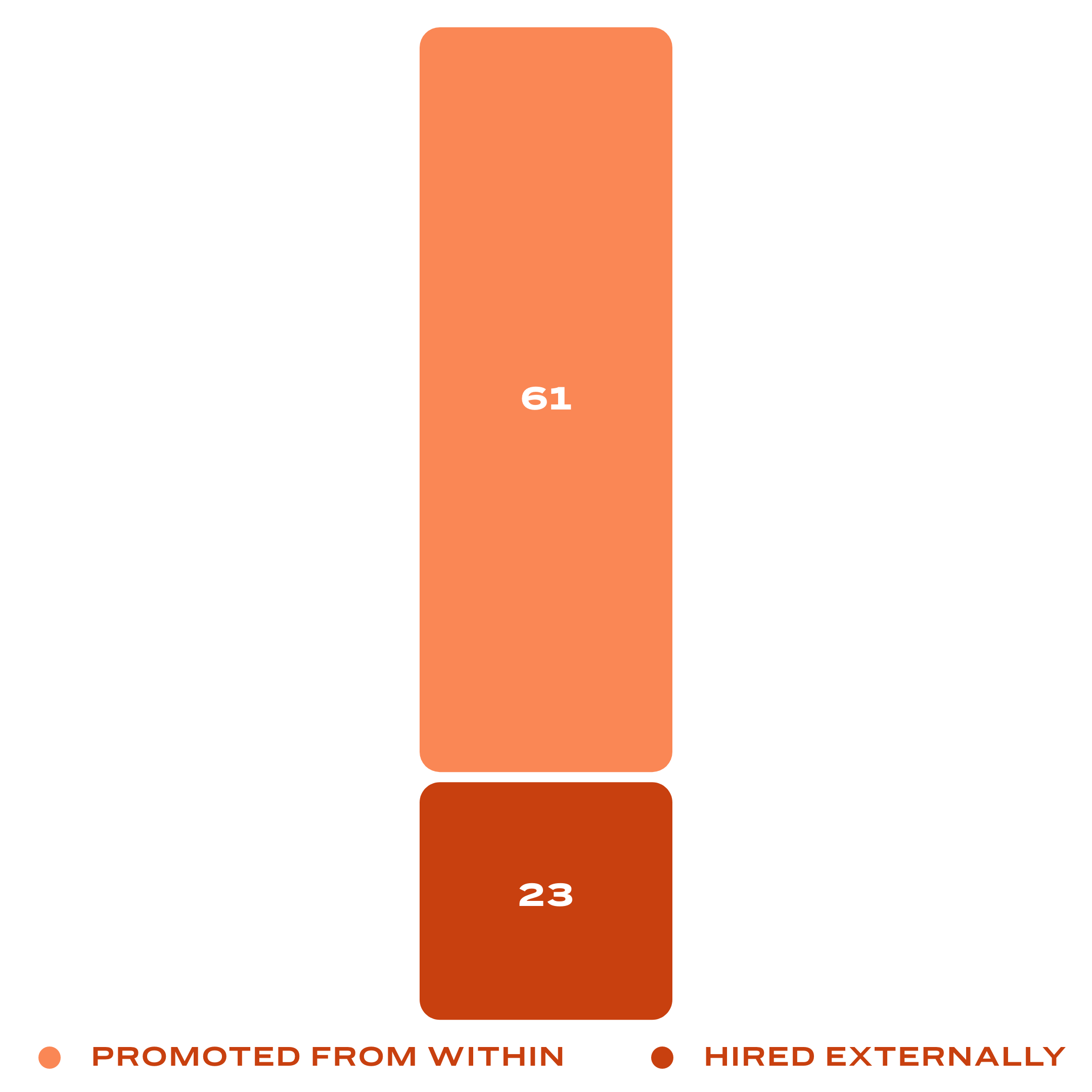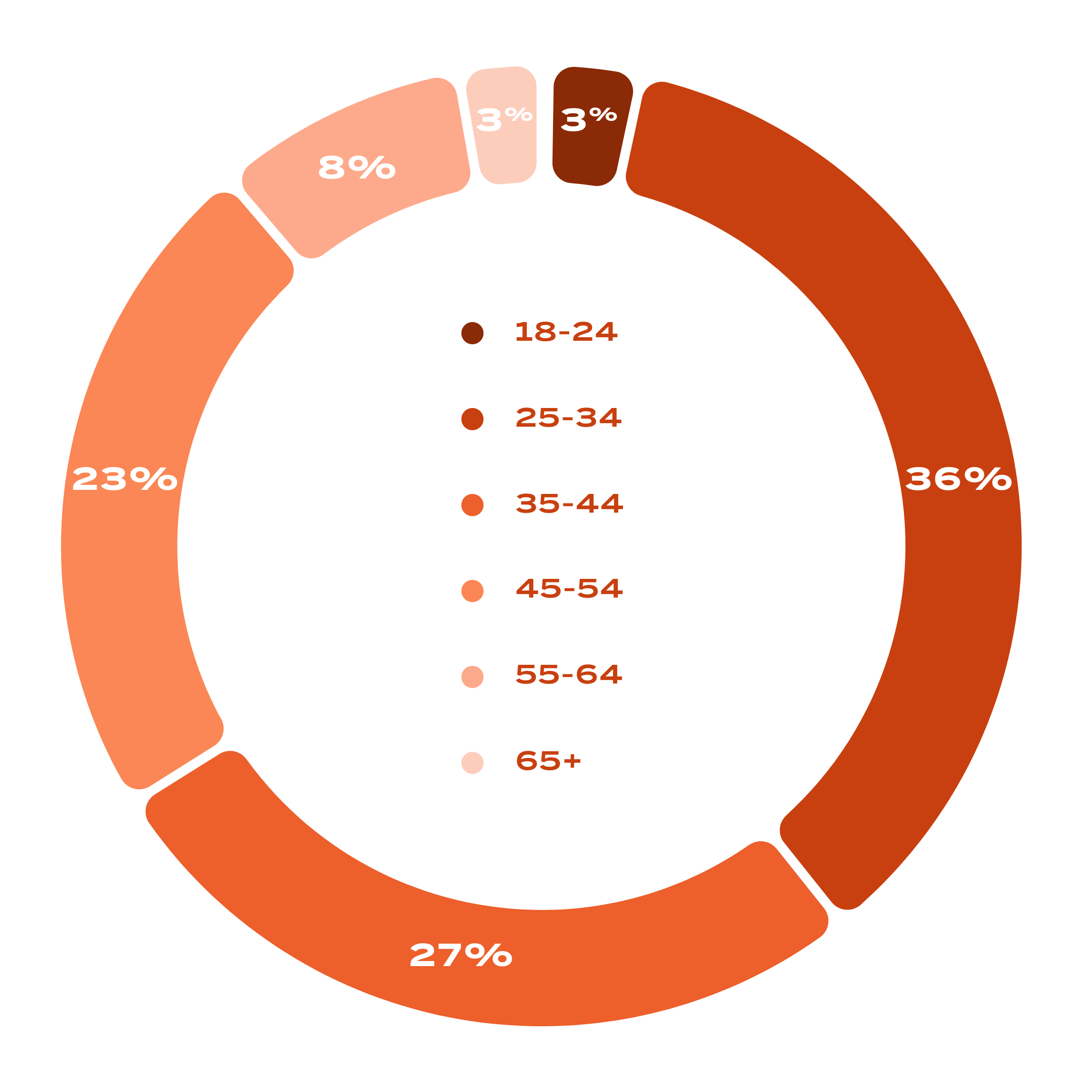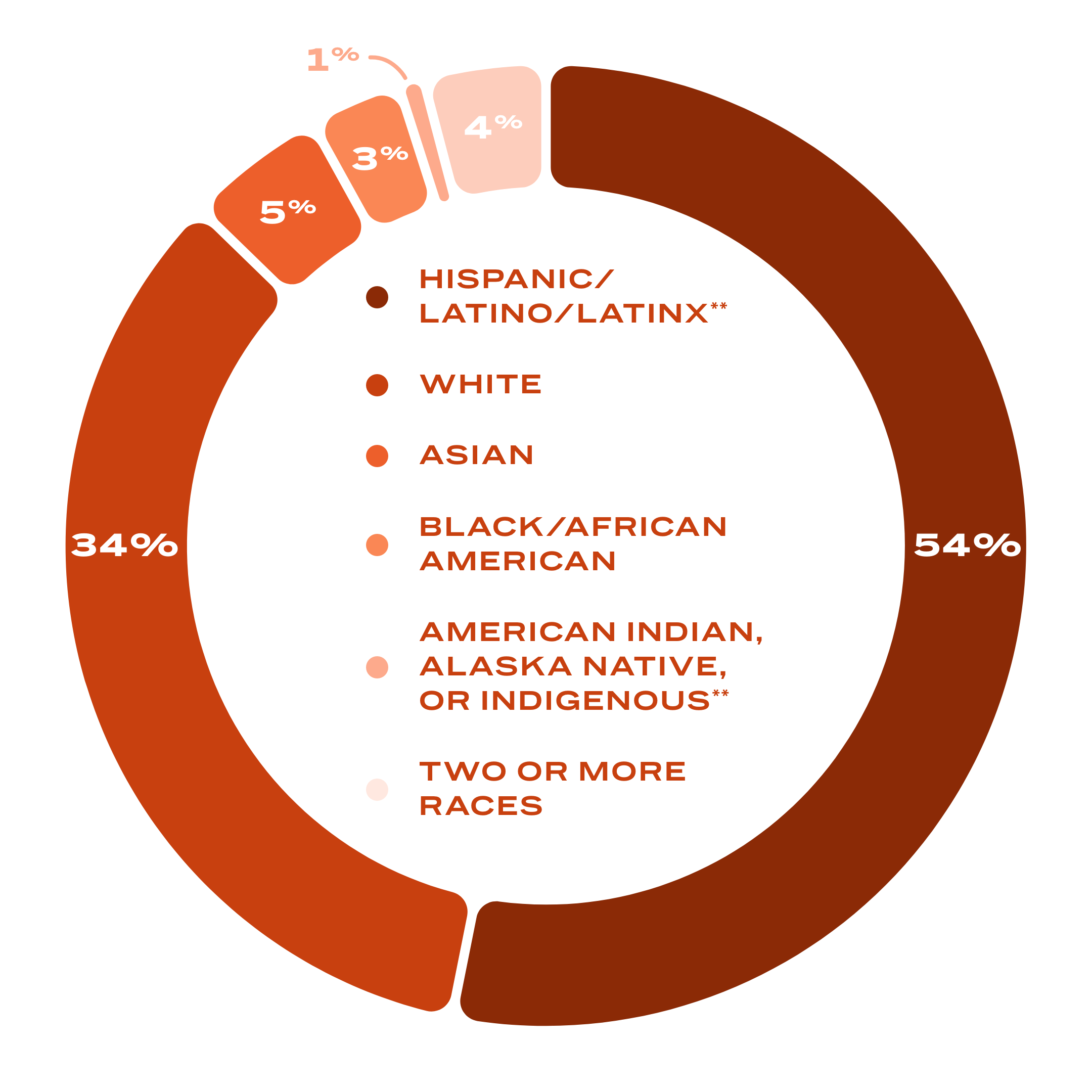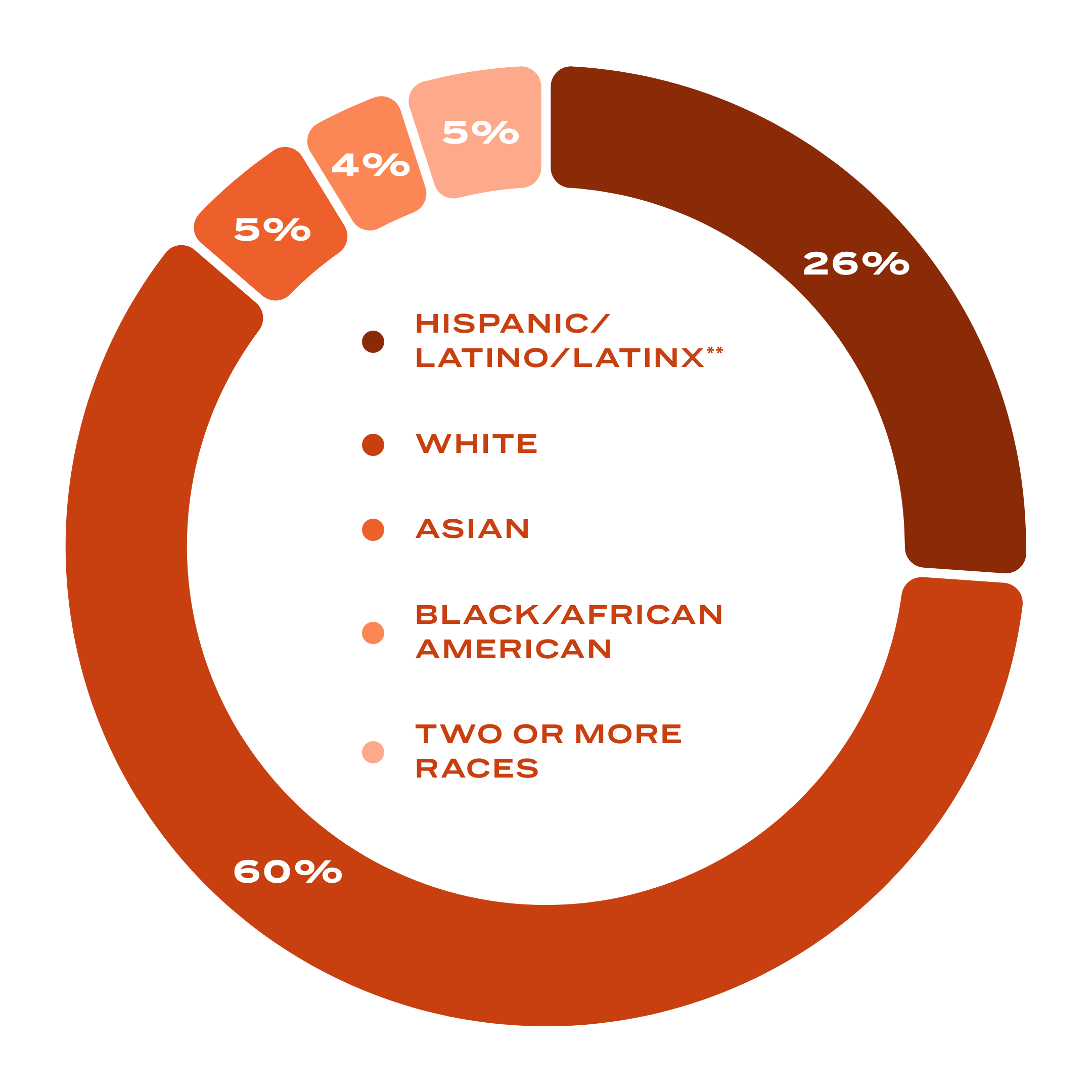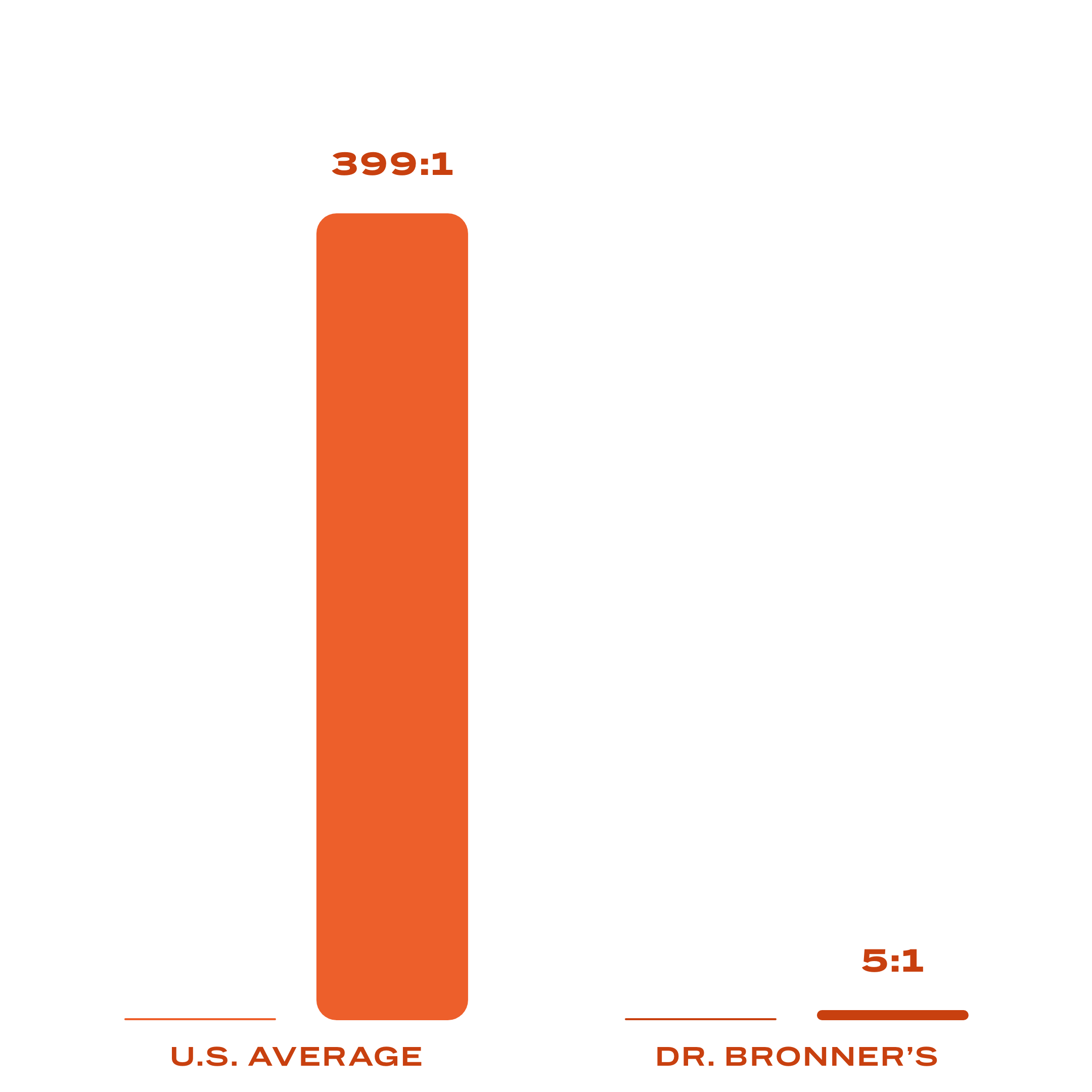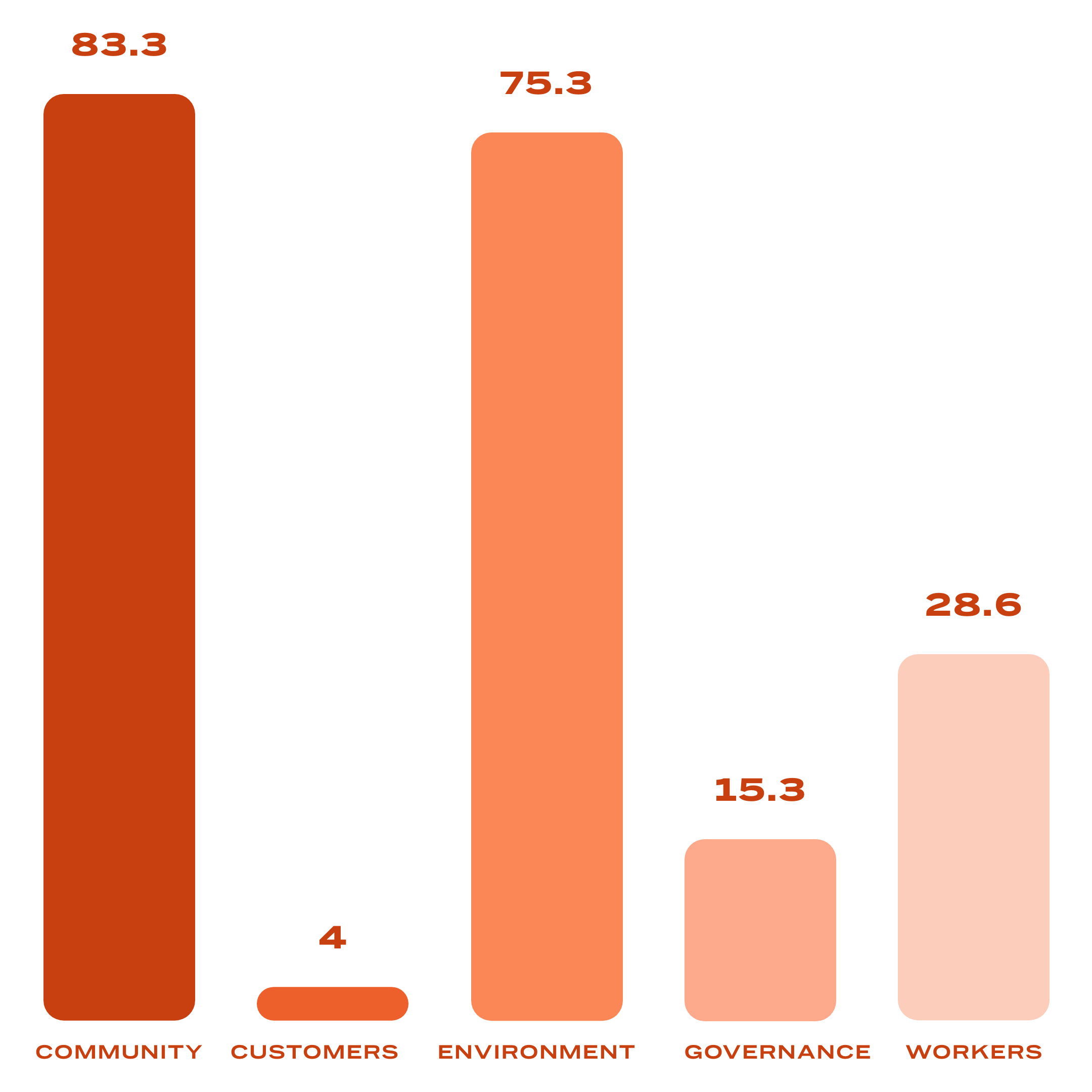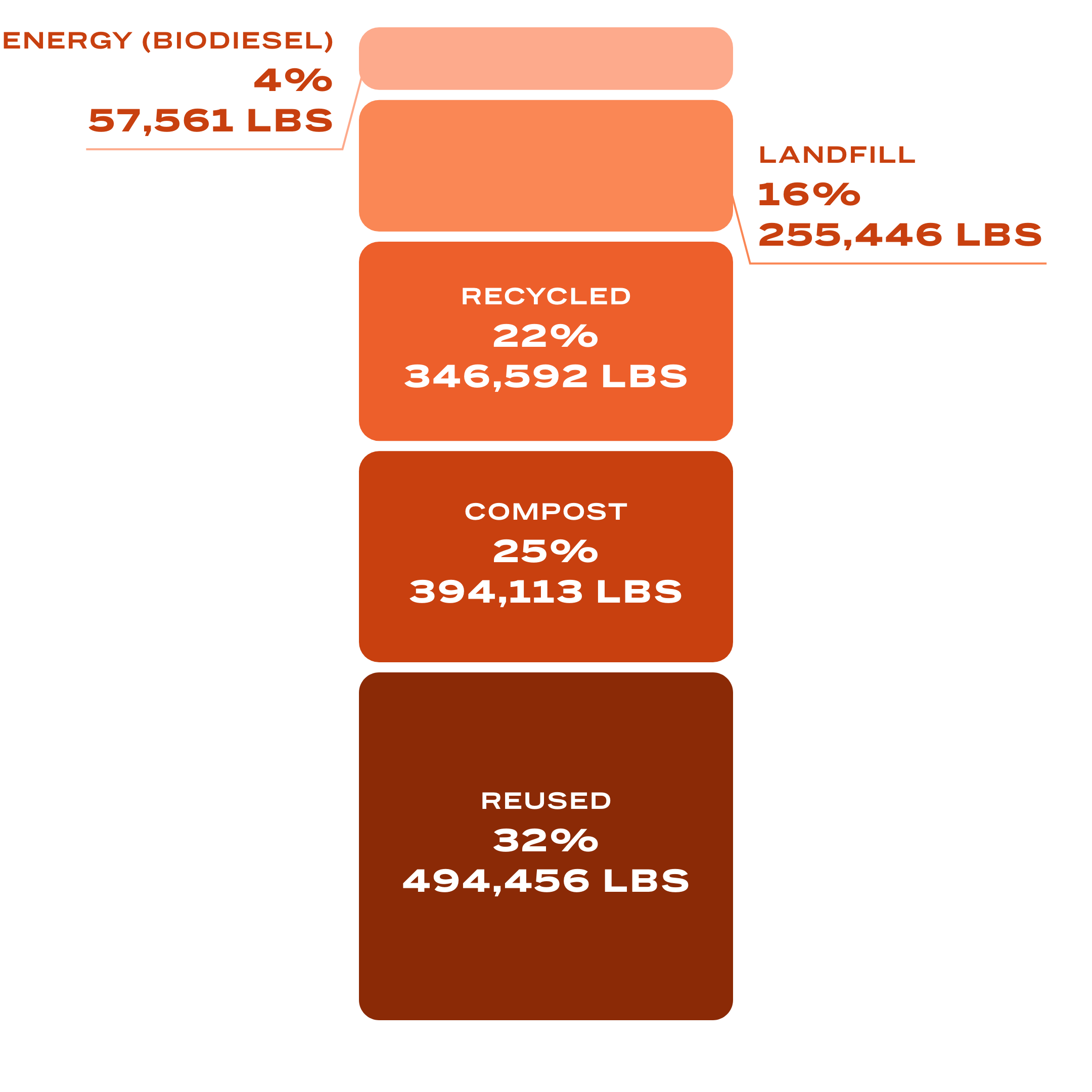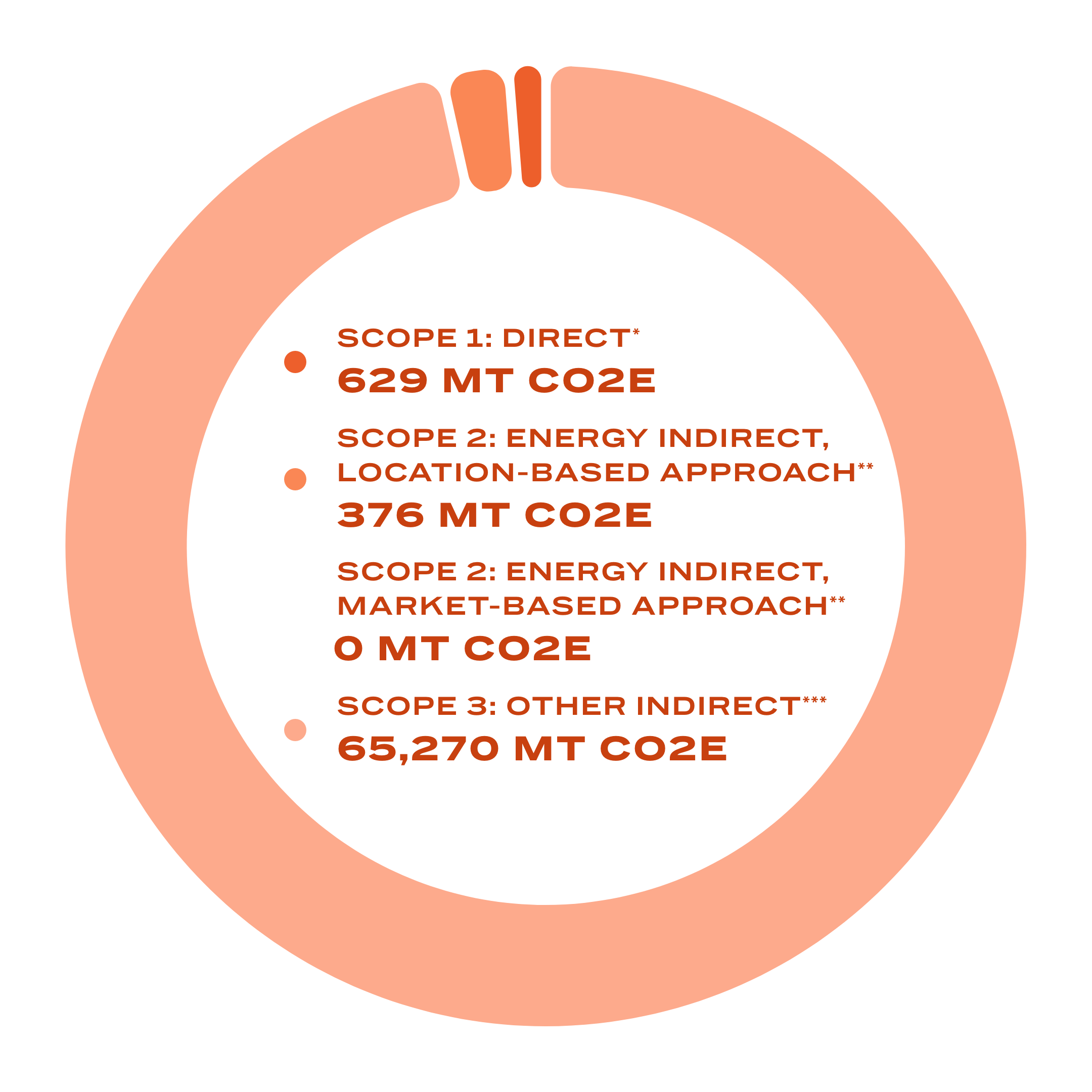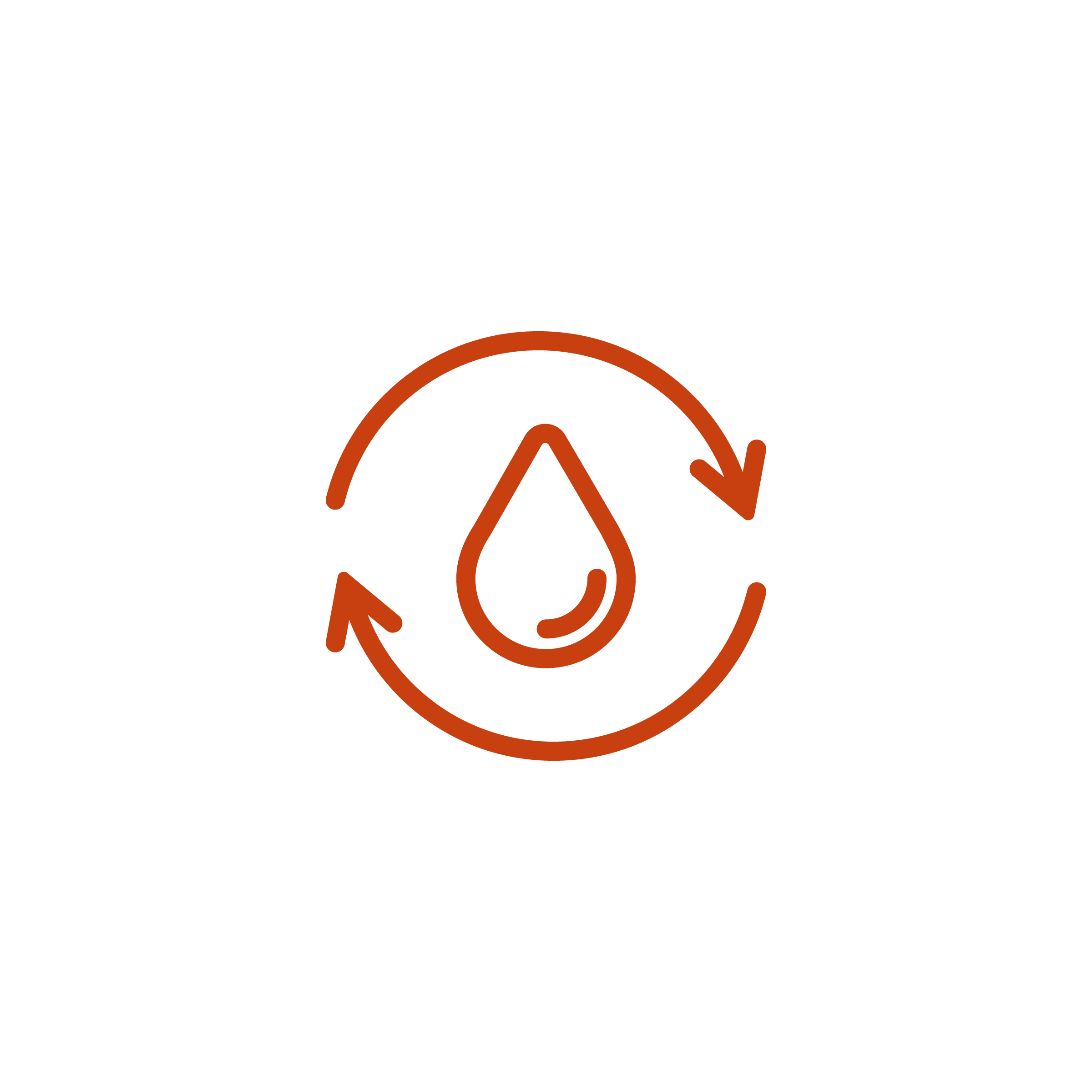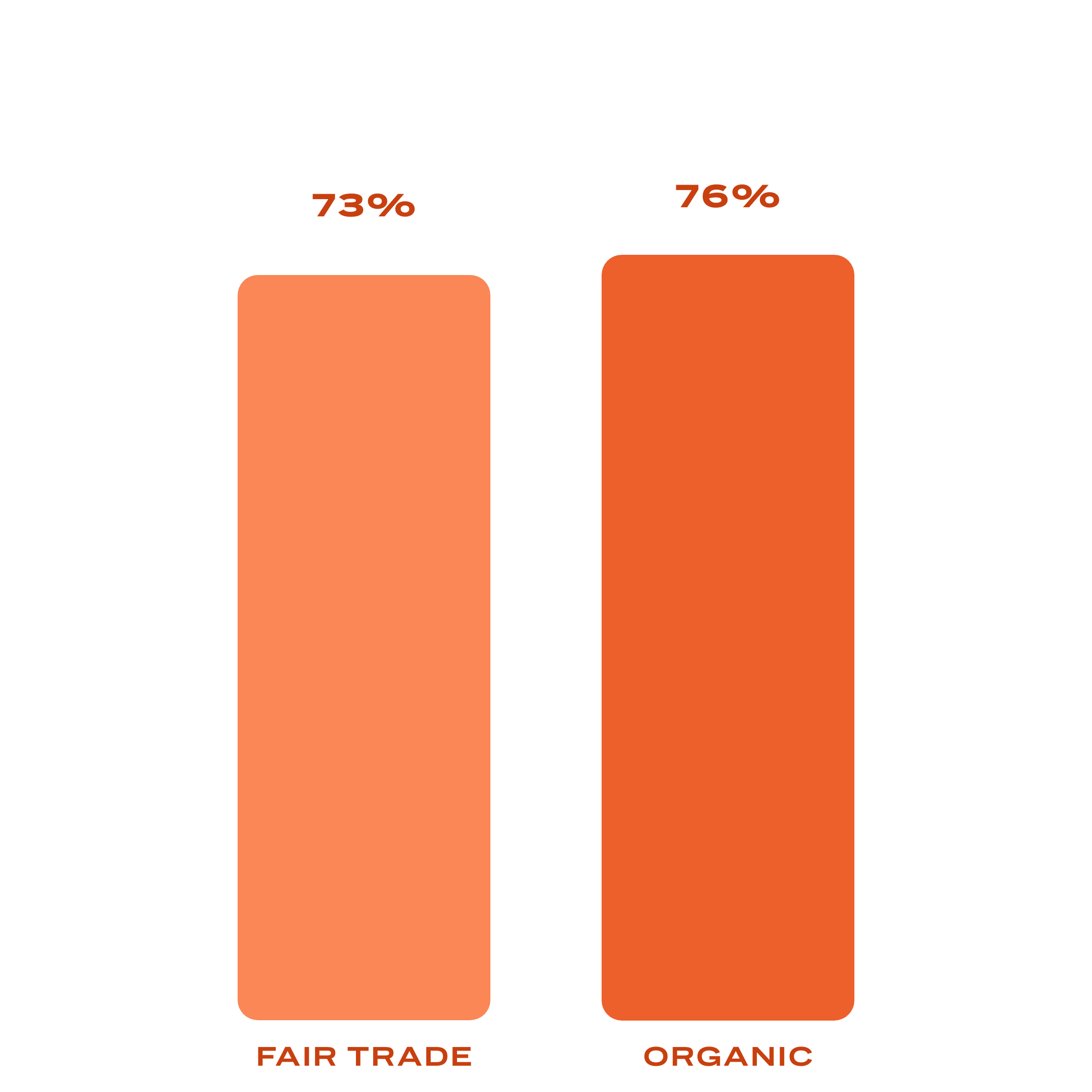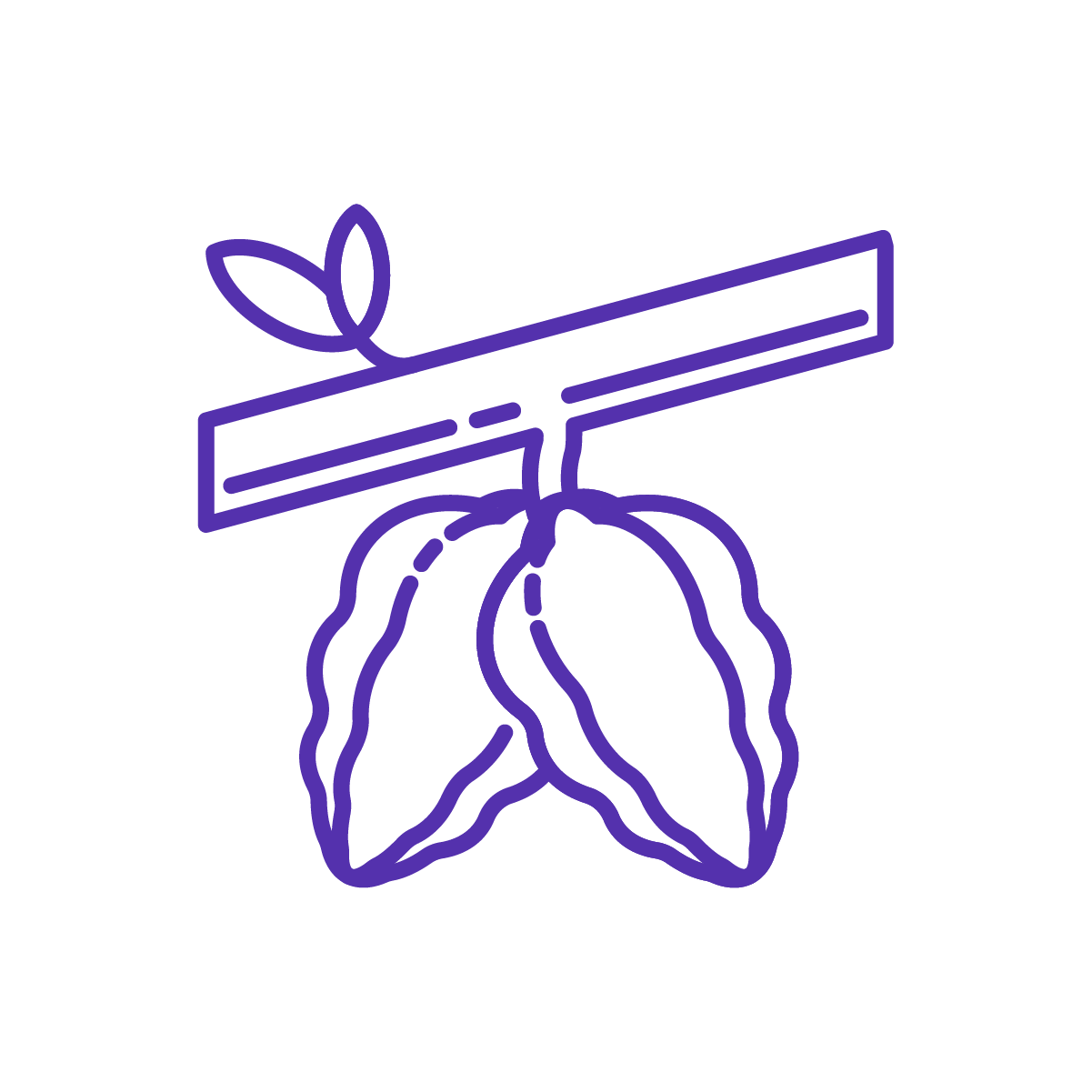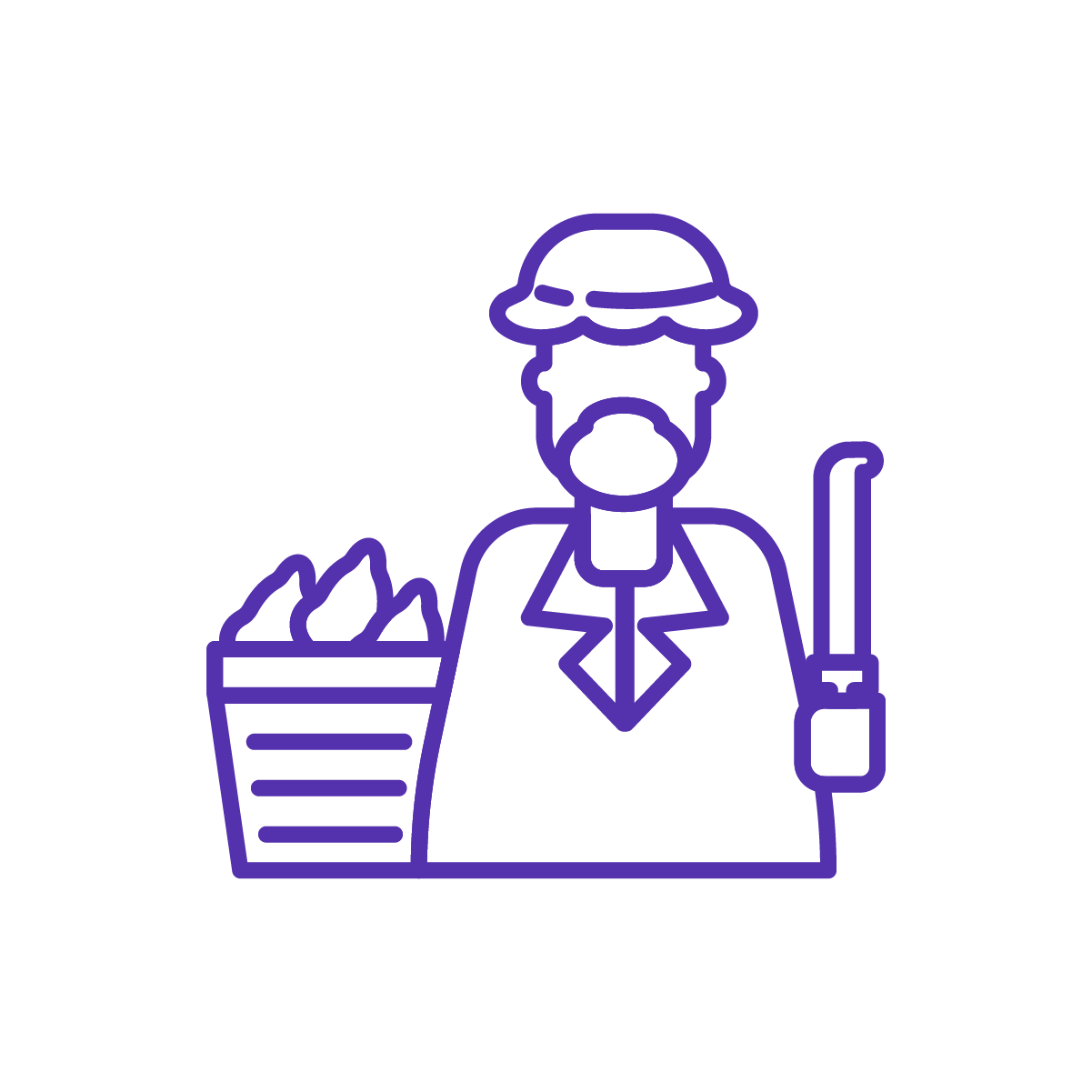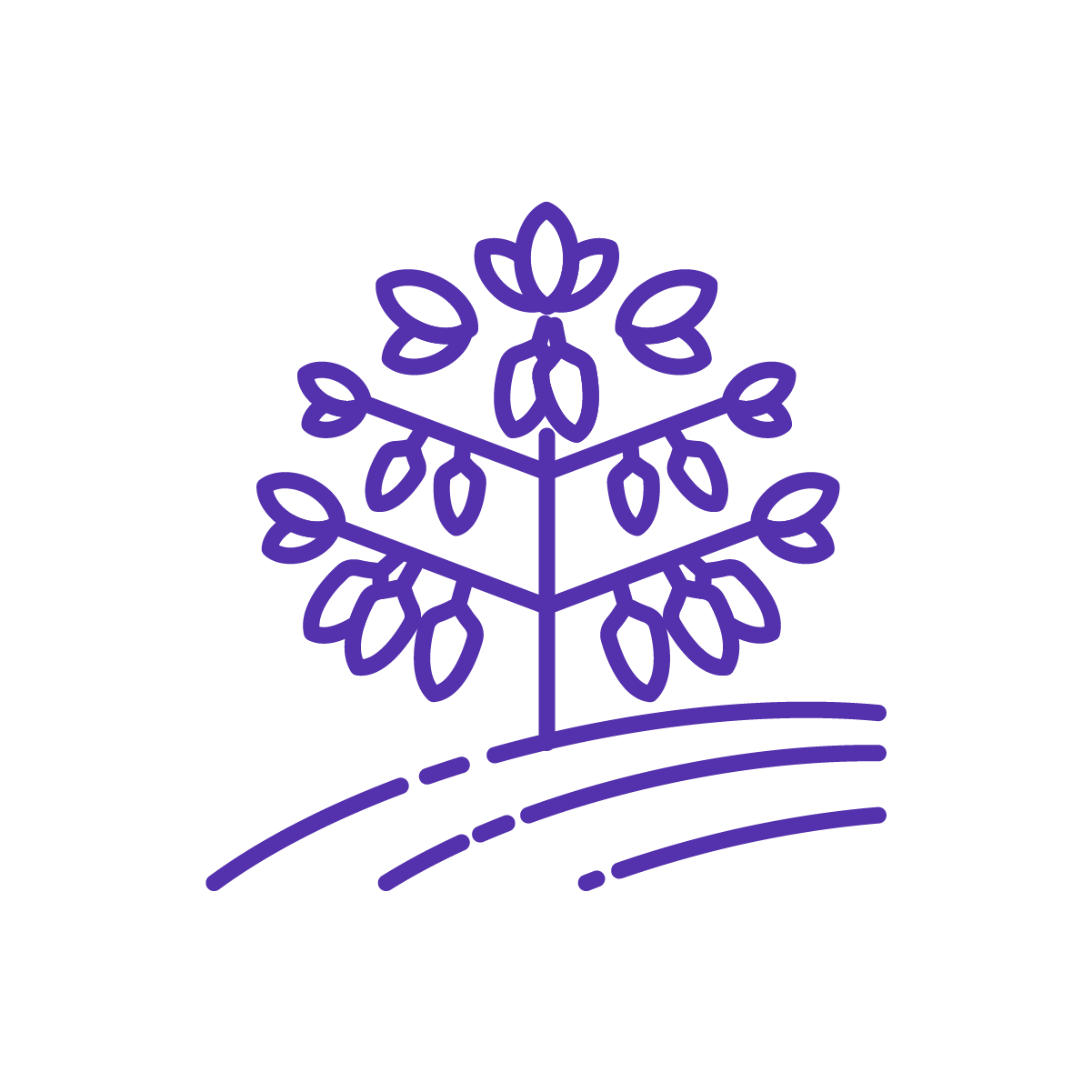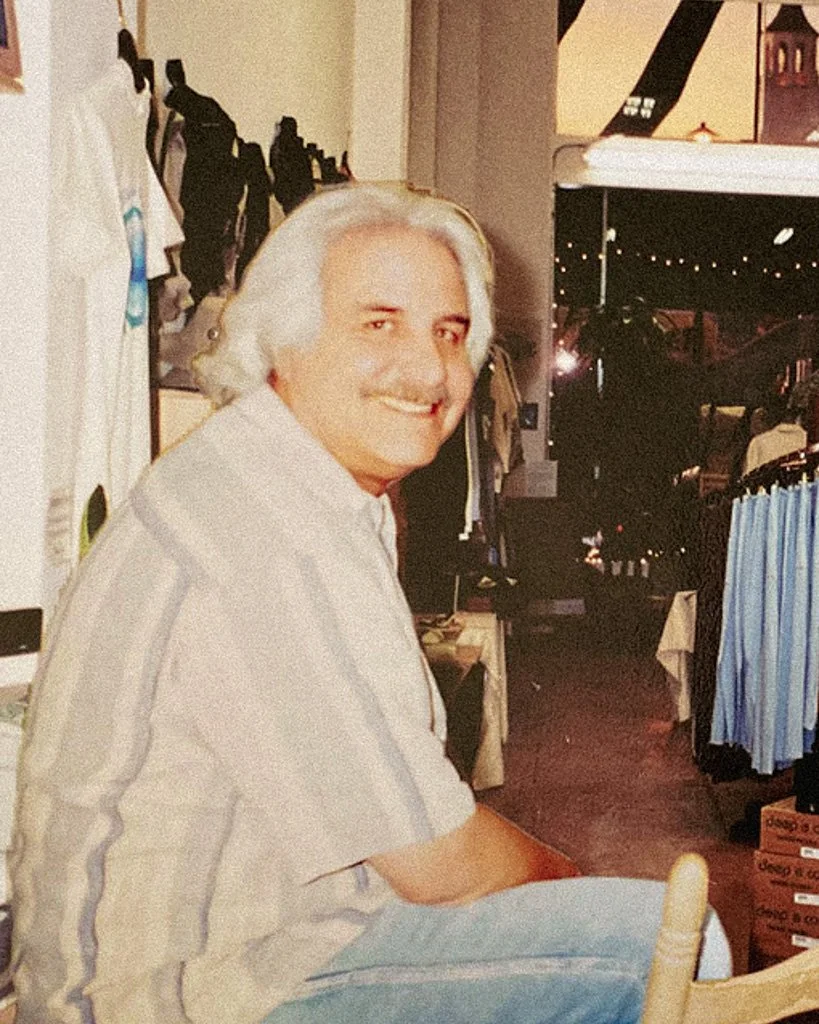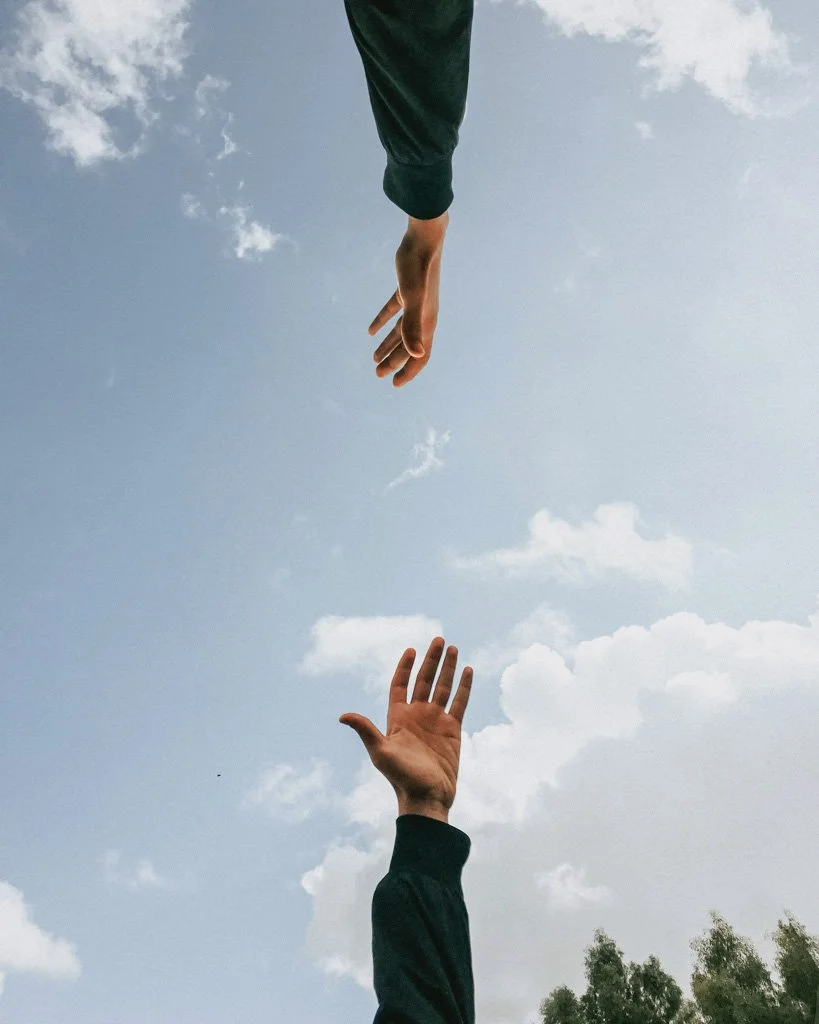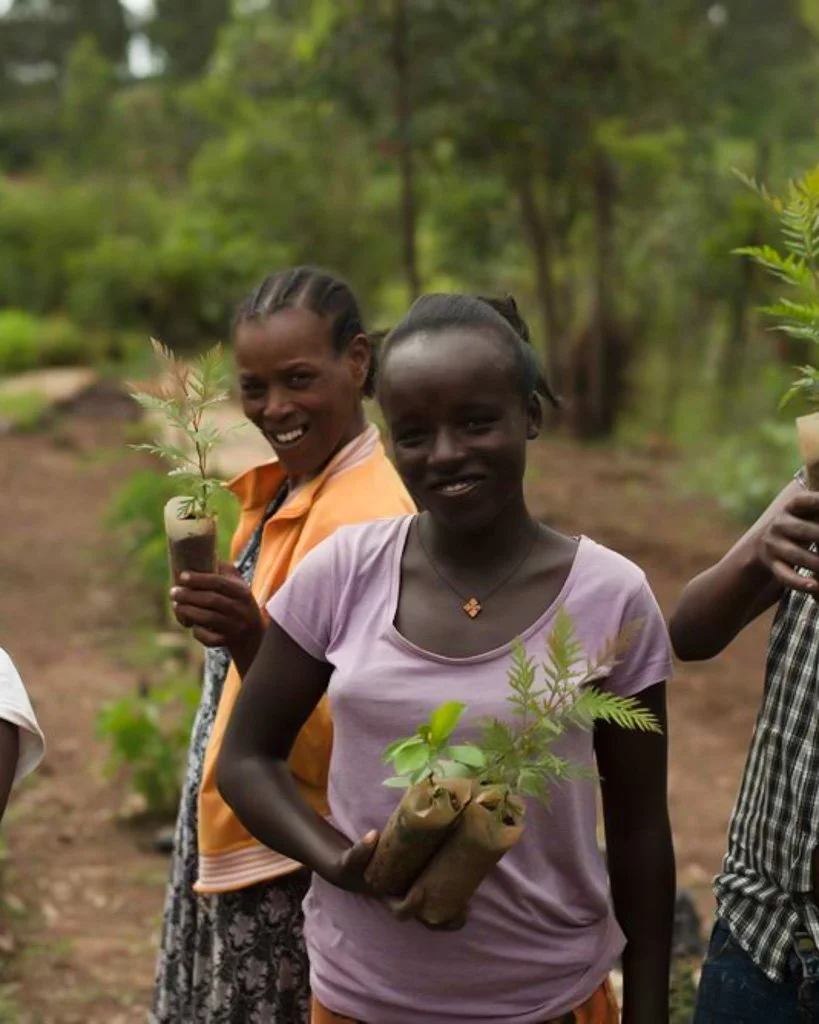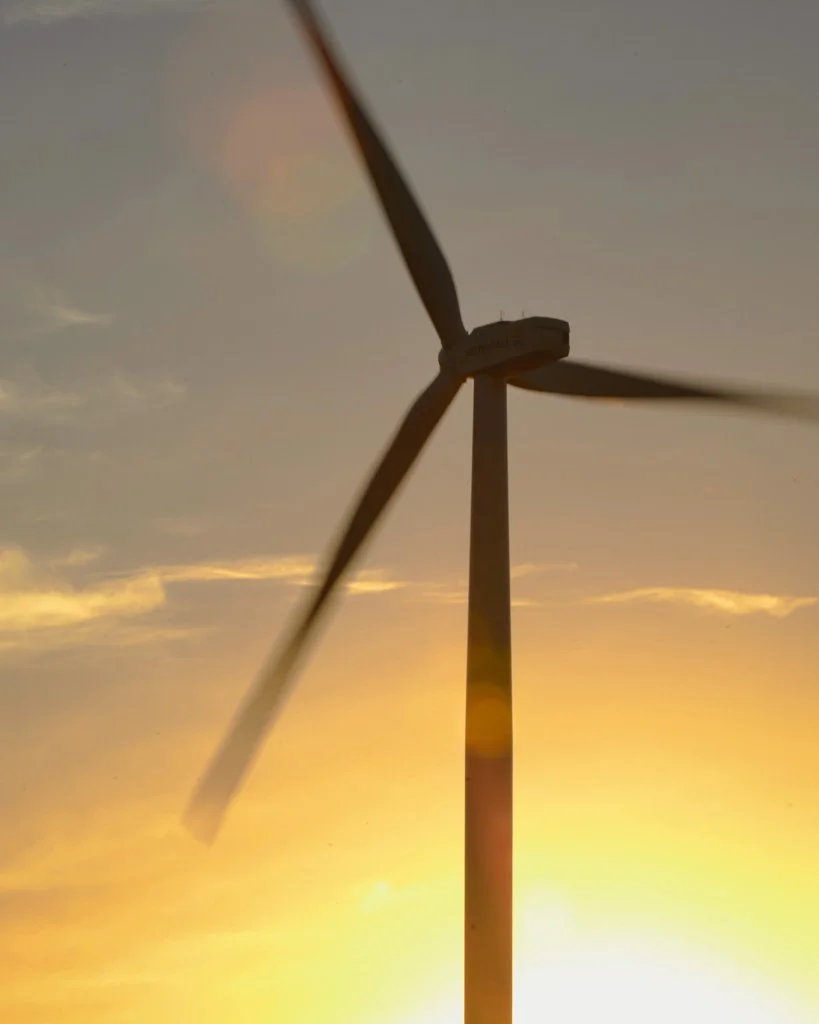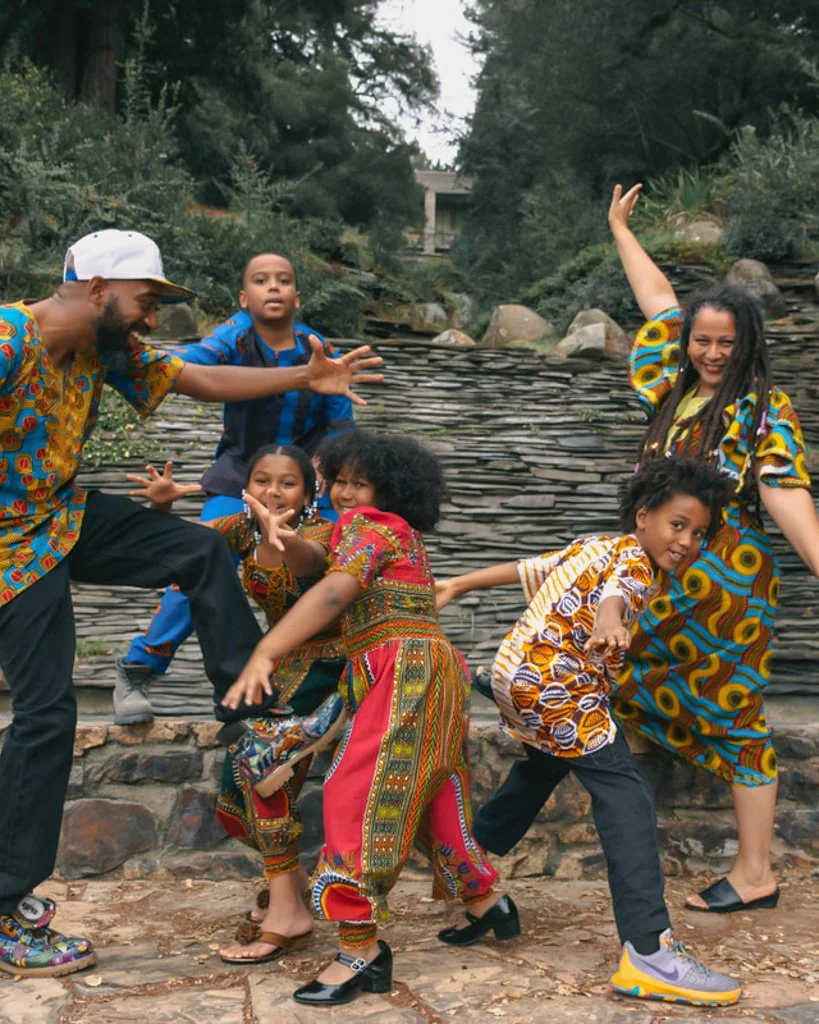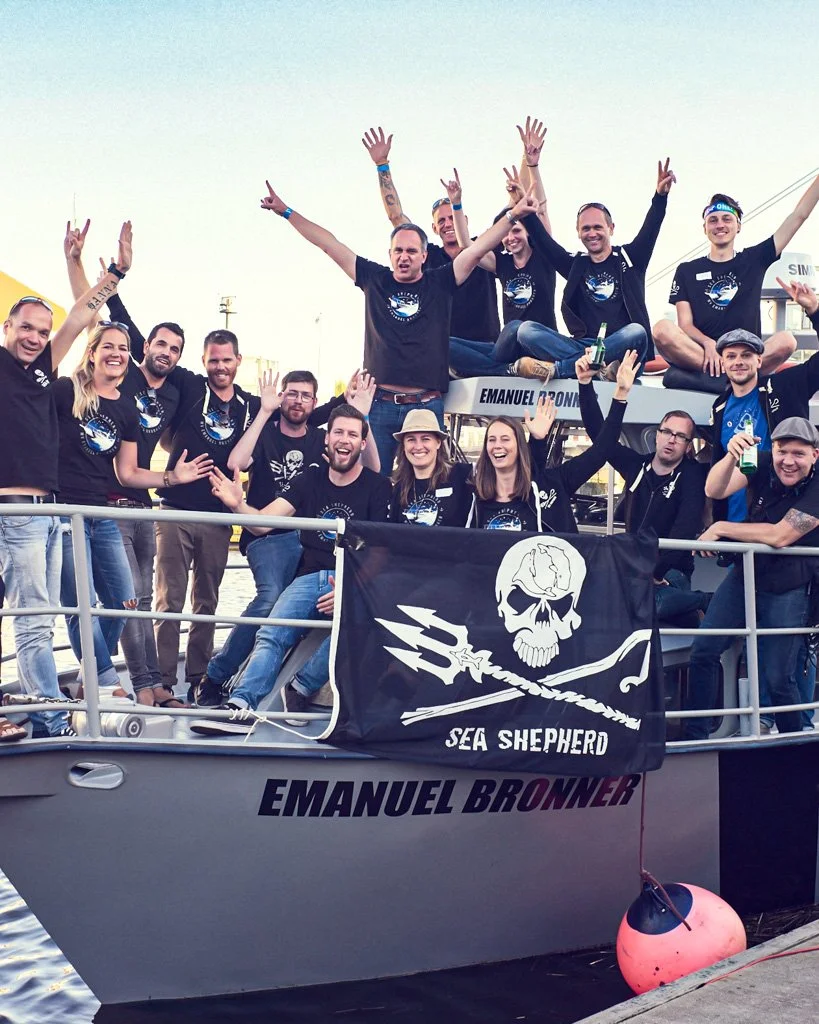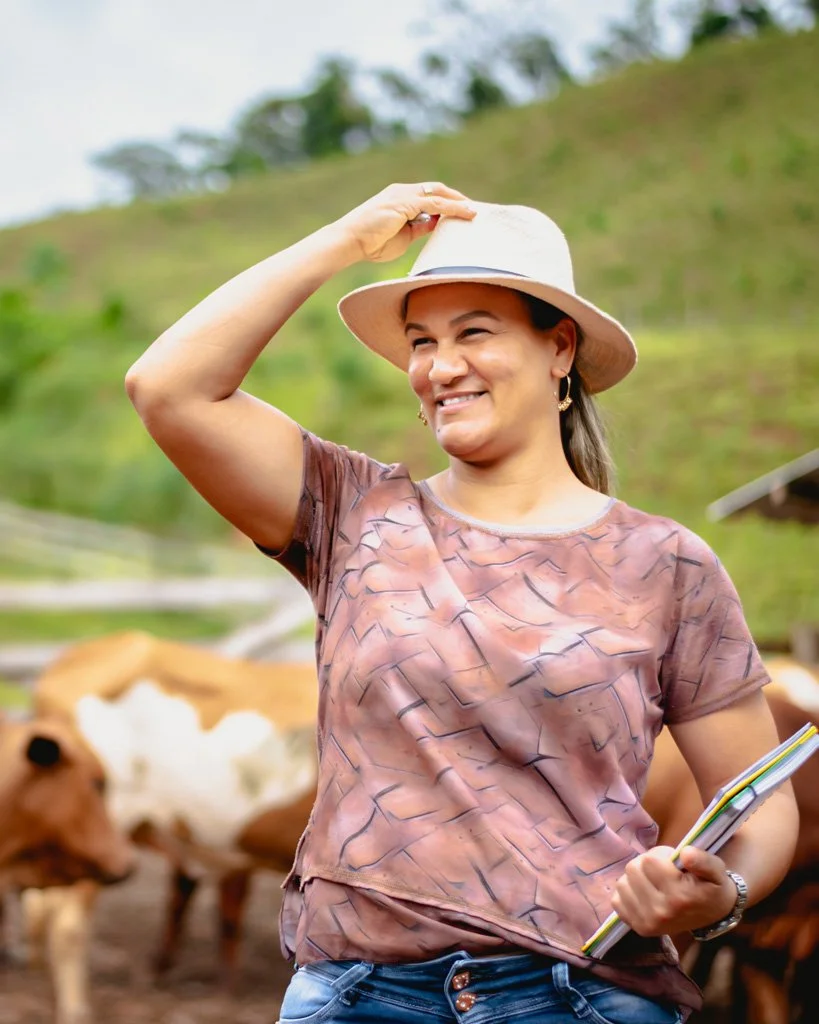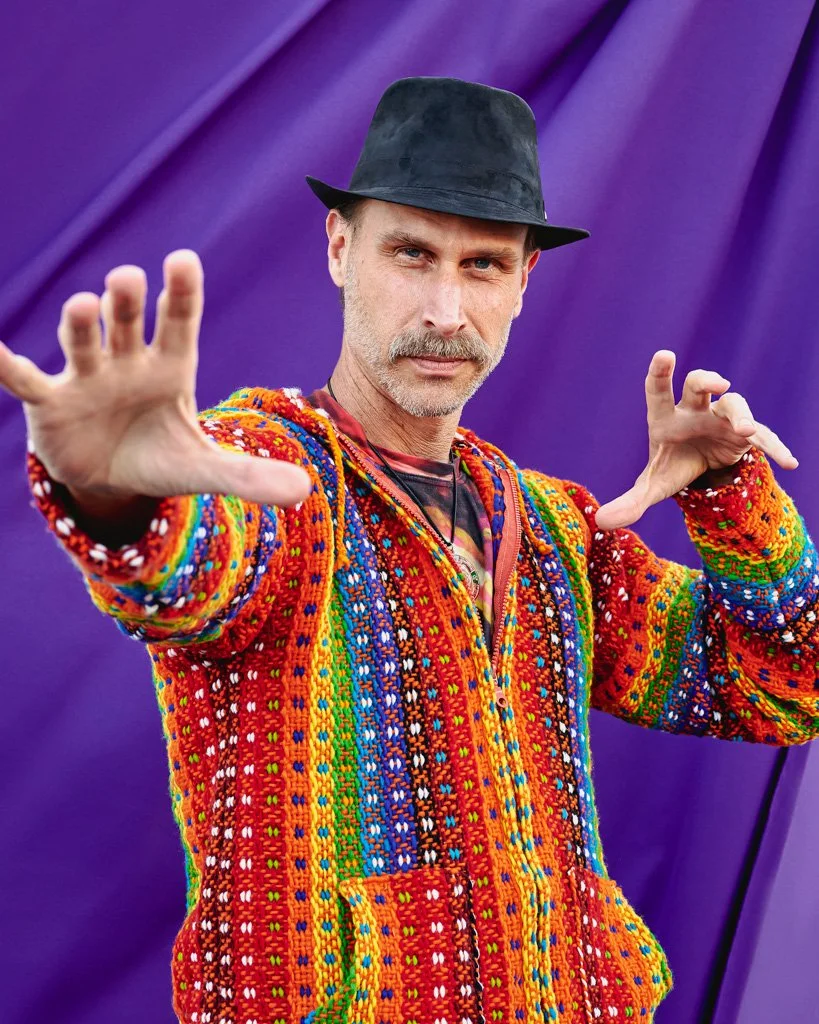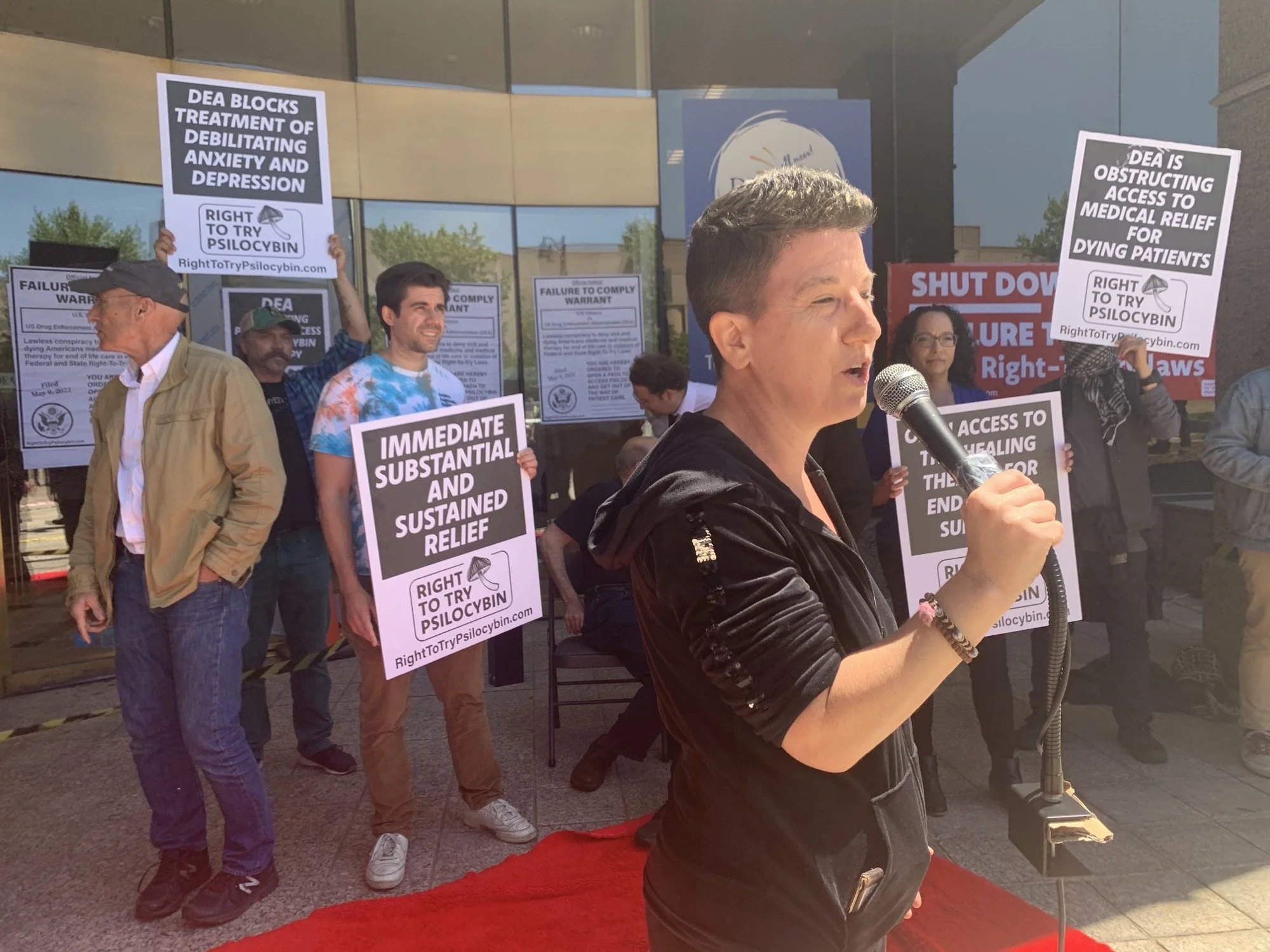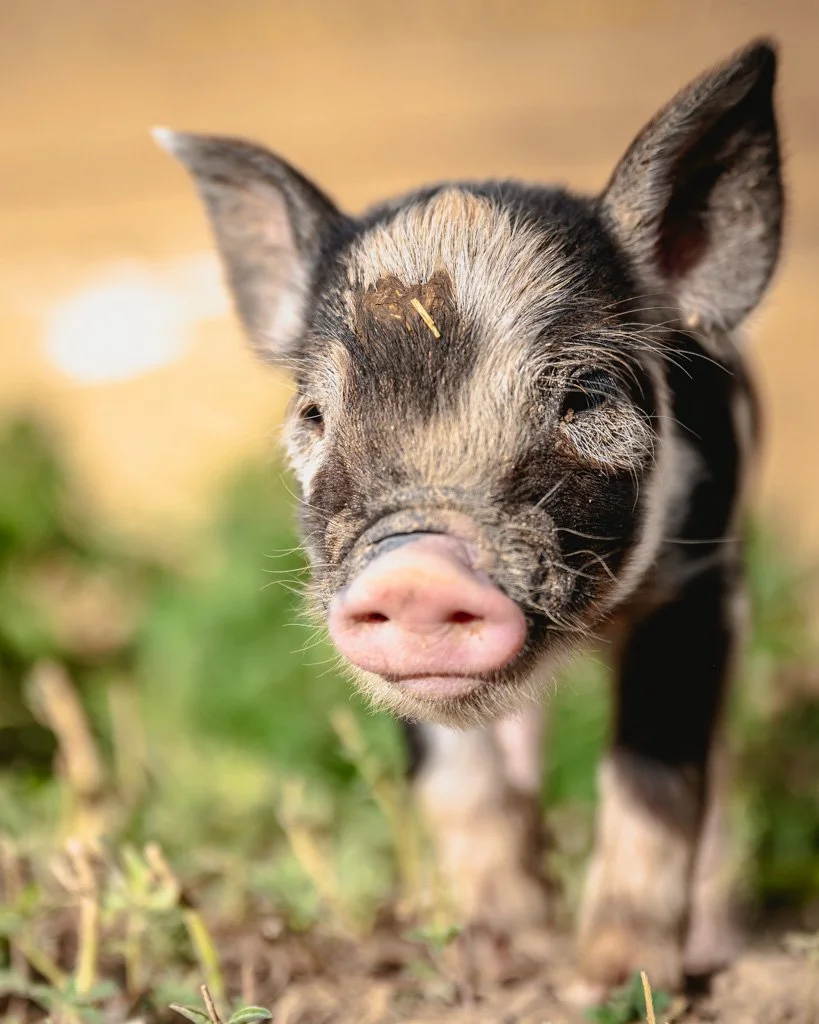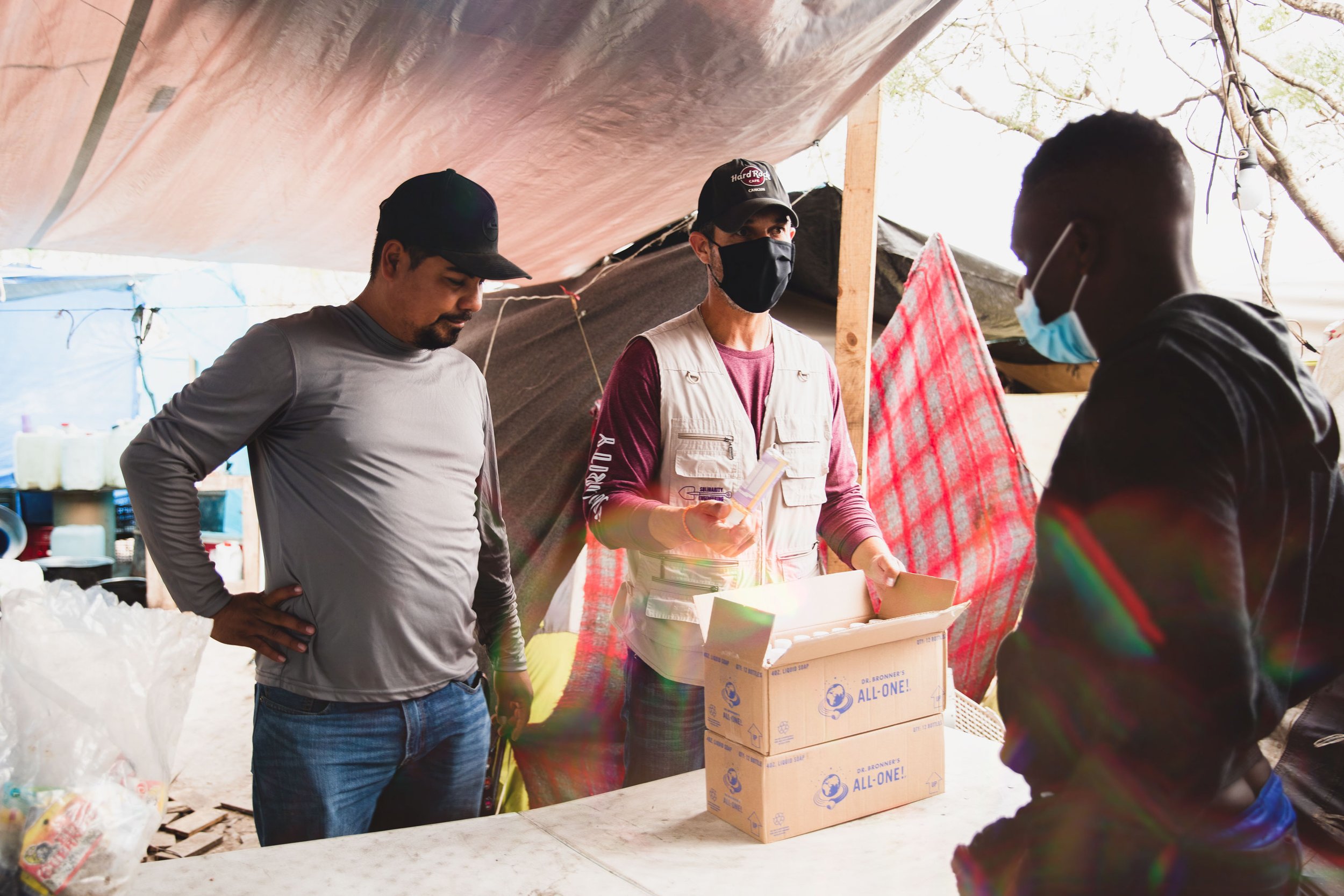
spaceship
earth!
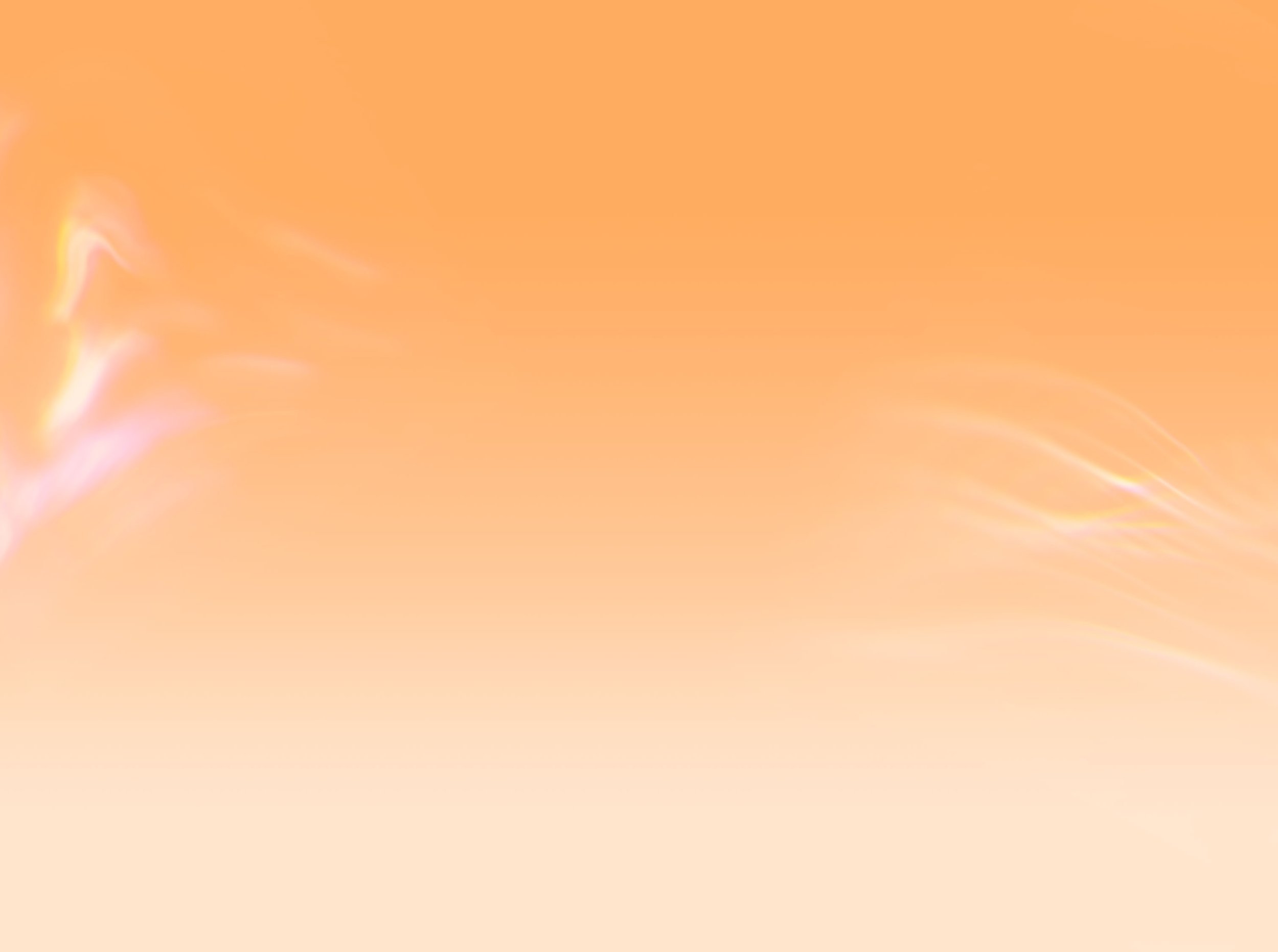
Emanuel Bronner, founder of Dr. Bronner’s
stay the course
As a company we have succeeded over the years by remaining dedicated to our cosmic principles—six commitments that define our most important stakeholder relationships as an ethical business. These commitments keep us rooted and focused—especially in the hardest of times. The last few years haven’t been easy, with multiple crises like Covid-19, climate change, economic precarity, and deep political divisions—that challenge us to stay true to our core values.
2023 marks 75 years in business for Dr. Bronner’s and 165 years since our ancestors began making soap in Laupheim, Germany in 1858. Dr. Bronner’s was founded in 1948 by our grandfather, Emanuel Bronner. His deep commitment to his values made everything he accomplished possible, including our company’s anniversary this year.
Since the beginning Dr. Bronner’s has modeled mission-driven business practices in the interest of helping make the world better. We are looking back at three-quarters of a century of spreading the ALL-ONE! message through doing business constructively. How has this business served the world? What do we have to offer to the challenges of our time?
Our grandfather made soap as a vehicle for his ‘All-One’ message that he included on his soap labels, exhorting people to take care of the Earth and each other. We continue to actualize that vision by using our business as a vehicle to elevate the livelihoods of all people in our fair trade supply chain and workforce, and to make positive impact through donating our profits.
Over the last twenty years, the company has contributed nearly $100 million to activism and charity and has fought to raise the minimum wage; reform the nation’s devastating drug policy; integrate psychedelic therapy to heal hearts and minds; protect farmed animals and ocean wildlife; and expose and transform industrial agriculture to a model that is regenerative organic and fair—among other efforts.
We have published this impact and sustainability report annually since 2015. The work that the All-One Report documents reminds us why we’re on this journey as a mission-driven business and it helps to inform where we go from here. Read on to learn how we stayed the course by staying true, in 2022. Onwards!
—David & Michael Bronner Mike (left) & David Bronner (right), President & CEO
2022 financial stewardship
-

$170.3M
Total revenue (USD)
-

86.7%
Total Global Sales were from U.S. market
Australia, Austria, Belgium, Canada, China, Cyprus, Czech Republic, Denmark, Estonia, Finland, France, Germany, Greece, Hong Kong, Hungary, Iceland, Indonesia, Ireland, Israel, Italy, Japan, Kenya, Korea, Lithuania, Luxembourg, Malta, Mauritius, Mexico, Netherlands, Norway, Panama, Poland, Portugal, Romania, Singapore, South Africa, Spain, Sweden, Switzerland, Taiwan, Uganda, United Kingdom
2022 Employee Statistics
*Based on the EEO-1 form, data collection mandated by the Equal Employment Opportunity Commission from all employers with more than 100 employees. We present this data here as a work in progress, in the interest of being transparent about the racial and ethnic identities of our employees. Currently, what we have collected is more limited than we would like. Dr. Bronner's is committed to continuously improving and evolving the language we use and the approach we take in striving to implement progressive best practices related to fostering social justice, diversity, equity, and inclusion in our company, both in general and around this data. We aim to provide more information in future reports, as we become more confident that our employees feel safe and comfortable in their self-reporting and self-identification, especially around sexual orientation, gender, disability, and veteran status, and as we become more competent in collecting this information.
**Non-EEO-1 term
Refill! Refill! Customers can refill their Pure-Castile Liquid Soap bottles.
Create a circular economy
innovating ways to reduce plastic use!
The world’s first ever truly circular Dr. Bronner’s Refill Station has rolled out in SoCal! We have always urged customers to “Refill!”—for the past fifty years we have provided bulk soap to food cooperatives and natural grocers so that customers could reduce their plastic use and refill their own containers. However, the program still relied on single-use plastic—large jugs that ultimately had to be recycled themselves once all the soap inside was sold. And the unfortunate reality is that recycling is a broken system, with too much plastic either ending up in landfill or “leaking” into the environment. We knew there had to be a better way.
Last year, we introduced a pilot "Bulk Refill Station" at Jimbo's Naturally grocery store in Carmel Valley, California—and launched a truly circular program that we hope will eventually become the norm. This innovative station allows consumers to refill their own containers with soap, while at the same time, we refill the containers that Jimbo’s uses to supply the station, eliminating the need for single-use plastic jugs. To accomplish this, we collaborated with the distributor Kombucha-on-Tap, who delivers large drums of kombucha and cold-brew coffee to our plant in Vista, and partnered with him to transport soap in refillable containers to the bulk station at Jimbo’s!
This sustainable initiative has shown promising results, with bulk soap sales outperforming our traditional plastic bottles at the store. The success of the pilot program means that we will be expanding the program to all Jimbo’s locations in 2023! Other retailers have also expressed interest, seeing that it is a viable and popular way for our soaps to be offered.
The refill stations not only reduce single-use plastic but also encourage customers to create their own unique scents by mixing various Dr. Bronner's soap scents together. As part of our commitment to helping customers transition towards sustainability, Dr. Bronner's offers reusable bottles for customers who forget to bring their own containers. The positive response to the refill stations so far demonstrates that customers value sustainable practices and are eager to participate in eco-friendly initiatives.
To see if a store near you offers our soap in a bulk station, you can now visit our store locator and filter for bulk. Join us in our quest to reduce plastic use and build a more circular economy!
Dr. Bronner’s refill install team at the world’s first circular refill station at Jimbo’s Naturally in Carmel Valley, California!
Dr. Bronner’s new Soap Refill Carton, launching in summer 2023, is intended for customers to use to refill our 100% post-consumer recycled (PCR) bottles.
From PCR to Paper
Small Changes for Big Impact
Since 2003, Dr. Bronner's has been committed to using post-consumer recycled (PCR) plastic for its liquid soap packaging. While it is admittedly still plastic, PCR plastic is nevertheless a great delivery system for our liquid products and has a much lower environmental footprint than most other packaging options. Plus, using PCR material builds demand for recycled plastic which helps support recycling collection and infrastructure.
In 2022, the company achieved a total of 80% PCR material used in our plastic packaging and we successfully transitioned all gallons and half-gallon bottles to 100% PCR plastic. We also increased the PCR content in some of our soap bottle caps to 50% and plan to raise that percent further as we can, aiming for 80% in 2023. To make sure that we are removing as much plastic from the world as we produce, we are piloting a plastic ‘insetting’ program to help tackle global plastic pollution and take responsibility for our plastic footprint.
Despite all this, we know that we must do more to reduce our dependence on plastic packaging. That’s why, after conducting exhaustive research on alternative packaging materials and finding that mostly-paper cartons have the smallest environmental impact, we are proudly launching soap refill cartons on drbronner.com and at select retailers in summer 2023.
2022 Environmental Footprint

Edi Adeline, an employee of Kany Scoops
Photo by Alfred Quartey, courtesy of Dr. Bronner’s
Introducing
Kany Scoops!
Dr. Bronner’s Regenerative Organic Cocoa Supplier in Ivory Coast
KANY Scoops in Ivory Coast is now Dr. Bronner’s largest supplier of fair trade and regenerative organic cocoa beans. Founded by Louise Topé, an Ivorian with years of experience in organic agriculture, certification, and development, the operation is managed by a women’s cooperative with the intention of empowering women in the region to lead and support local farming operations for the harvesting and processing of cocoa. KANY Scoops was founded in 2016 in the village Séguié, near Agboville, in the east of the Ivory Coast.
In Côte d’Ivoire (Ivory Coast), women account for nearly 70% of the labor in cocoa production but receive only about 20% of the income. KANY is committed to changing this. KANY, which means “light” in the Akan language, exists to center, and support women in cocoa farming. The project takes a unique approach to empowering women, families, and rural communities, and has already had a powerful positive impact in a very poor area by improving quality of life for its members and partners. KANY ensures that the work of women on cocoa farms and in support of these farms is valued. Women farmers who do not own land can also become members of the project.
KANY currently has 650 certified organic farmers (EU/NOP). Like Dr. Bronner’s other key suppliers of raw materials, KANY is certified Fair for Life (FFL) and, since 2023 is also Regenerative Organic Certified. KANY is a flagship example of a cocoa project rooted in transparency, true traceability, and ecology.
Cutting open a raw cocoa pod
Photo by Alfred Quartey, courtesy of Dr. Bronner’s
KANY Scoops team in Ivory Coast
Photo by Alfred Quartey, courtesy of Dr. Bronner’s
Students at Serendipalm’s newly opened Montessori school in Asuom, Ghana
Photo by Dr. Bronner’s Special Operations Team
playing & learning in ghana!
Serendipalm opens its Regenerative Learning Center, offering inspiring education
In 2016 the staff at Serendipalm, our sister-company in Ghana that supplies us with palm oil, requested that we provide their kids and grandkids more inspiring and affordable pre-schooling. Education, notably of girls, is key to creating a fair and regenerative world. In January 2023, after numerous delays, the doors for the Montessori preschool at Serendipalm’s Regenerative Learning Center finally opened to students. Four of the six “double-huts” are serving as a preschool for 100 children.
Once we started operations many parents asked: “Where do our kids go after they finish preschool? There is no decent elementary school around!” In response we quickly decided to allocate the remaining two double-huts, which will be operational in September 2023, to serve children in grades one to four, each accommodating 40 children.
To provide education that is both foundational and inspiring requires a good deal of curriculum development and teacher training. Serendipalm and Dr. Bronner’s have been intentional about the hiring and training of school staff. Fifteen selected candidates underwent a 35-session course with a recommended Montessori practitioner. Teachers for the elementary school will also be Montessori-trained. Initial visits to the school were moving and exciting to us and to visitors—we look forward to watching this project and the students grow!
Waste materials are collected and used for building materials or PCR products in Ghana and Europe.
Photo by Dr. Bronner’s Special Operations Team
Cleaning up plastic waste
Piloting our plastic insetting program
Dr. Bronner’s sister-company, Serendipalm, based in the town of Asuom in Eastern Ghana, supplies us with certified fair trade palm oil and cocoa beans. The small town has no organized waste collection and is littered with plastic waste. In 2021, Dr. Bronner’s staff and the Serendipalm team set out to address this problem in collaboration with community members. We designed a collection and recycling program based on fair trade terms. The team of ten collectors, supervised by a professional manager, receives fair wages to facilitate waste collection in Asuom and several neighboring communities. The collected waste is sorted and bailed in a press at our own local collection center and then sent to local regional recycling centers.
Waste collection officially began in December 2022. The sale of low-value plastic does not generate enough revenue for building a decent infrastructure or for providing fair wages. This led us to obtaining co-funding for the project from the German development agency DEG. Dr. Bronner’s supports operations, notably payment of fair wages through an “inset fee” for each ton of waste collected, documented, and recycled. This collection program has become part of Dr. Bronner’s global campaign to reduce and ultimately eliminate our “plastic footprint” as a company.
Collection is focused on a range of plastic materials, such as bottles, bags, and water sachets. Once collected, sorted, baled, and cleaned, the materials can be used for building materials or, granulated for use in PCR (post-consumer recycled) products in Ghana and in Europe. During the initial phase of this project we seek to gain experiences on where to collect, what materials to focus on, how to compensate and incentivize collectors fairly, and how to make sure that “no waste gets overlooked.” We are excited about this program and are looking forward to gradually watch plastic trash disappear from public spaces in Asuom and the entire district.
Teams receive fair wages to facilitate waste collection in Asuom and several neighboring communities.
Photo by Dr. Bronner’s Special Operations Team
2022 fair Trade & Organic Supply Chain Activity

Quantal (left) and Katie (right) volunteering with Humanity Showers, a mobile shower project that provides over 2,000 showers per month to the homeless population in San Diego, Orange, and Los Angeles Counties.
Photo by Jordan Verdin
Giving in Our Own Backyard
Dr. Bronner’s Legacy of Giving in the San Diego Region
When Jim and Trudy Bronner moved their family to Escondido in 1996 to work full time for Dr. Bronner’s, they were keen to be actively engaged with the local community. Jim and Trudy were especially interested in contributing to projects that would strengthen San Diego’s social fabric. Jim got involved in coaching soccer at the local Boys & Girls Club, while Trudy began to participate in several local service organizations. Jim and Trudy’s commitment to the local community eventually led them towards supporting organizations not just with their time, but also by steering company funds towards helping local nonprofits with their operating costs.
Since Jim and Trudy moved to San Diego, Dr. Bronner’s has given over $7 million to over 100 local nonprofits, with a focus on serving youth, families, and unhoused people, and uplifting local environmental sustainability efforts. In 2022, Dr. Bronner’s provided funds to a total of 33 San Diego-based organizations, and donated product worth over $250,000 to another 75 local nonprofits. Trudy continues to serve on the boards of several nonprofits and in other leadership roles in the San Diego area.
“The people of San Diego are our neighbors, our friends, our employees, and our community” says Trudy Bronner, “it is an honor to give back to the community that has given us so much.”
2022 all-one! in action timeline
2022 U.S. & International Donations
$8,670,447
Total Donated to activism
Dr. Bronner’s has always been an activist company, dating back to when Emanuel Bronner was calling on the human race to unite from street corners and auditoriums, selling his Peppermint Pure-Castile Soap on the side. Carrying forward that same activist spirit, it is our mission to continue to use the company today to fight for and financially support causes we believe in: regenerative agriculture, fair trade, animal advocacy, industrial hemp and drug policy reform, and living wages—among others.
-
Animal Equality (Mexico)
Animal Justice (Canada)
Animal Outlook
Black Veg Society
Black Vegans Rock
Coextinction
Compassion in World Farming (UK)
Compassion in World Farming (US)
Factory Farming Awareness Coalition
Farm Forward
Farmed Animal Funders
Good Food Institute
Black Veg Fest
Humane Society of the United States
Nepada Wildlife
Our Hen House
Poplar Spring Animal Sanctuary
project FANG: Animal Rights Prisoner Support
Reducetarian Foundation
Sea Shepherd Global
Sistah Vegan Project
SÜPRMARKTVINE Sanctuary
Wild Orca
Women Funders in Animal Rights
YEA Camp -
Boys & Girls Clubs of Greater San Diego
Boys to Men
Rajepre
Safe Horizon: Streetwork Project
San Diego Children's Discovery Museum -
Building Bridges
Gender Illumination
Global Giving Foundation
Movement for Black Lives
One More Wave
Safe Place International
San Diego Pride
TRANScend Conference -
Black Wall Street AVL
Burning Man Project
California Center for the Arts Escondido
City of Vista Moonlight Amphitheatre
Community Foundation of Boulder County
Escondido Rotary Foundation
Grassroots Aid Partnership
Interfaith Community Services
First Haitian Baptist Church San Diego
Luvworx
Mutual Aid Disaster Relief
Oceanside Kitchen Collaborative
QueerDome
Reclaim Rent Control
San Diego Business Journal, Cause Conference
San Diego Foundation
San Diego Gives
San Diego North Economic Development Council
Training Education & Resource Institute
Vista Chamber of Commerce
We Are Family Senior Outreach Network -
Defy Ventures
Fair Shake
Jail Guitar Doors -
CHEM Global Campus Project
Alma Institute
Americans for Safe Access
Awe Foundation
Brooklyn Psychedelic Society
Cannabis Culture Museum and Archive
Chacruna Institute
Chapel of Sacred Mirrors
Church of the People for Creator and Mother Earth
DanceSafe
DRCNet Foundation
Drug Policy Alliance
Enthea
Equity Trade Project
Fireside Project
Fruiting Bodies Collective
Guardian Grange
Health Equity Program (a program of MAPS)
Heffter Research Institute
Heroic Hearts Project
Hope Project
Horizons Center PBC
Indigenous Medicine Conservation Fund
Indigenous Reciprocity Initiative of the Americas
International Center for Ethnobotanical Education Research & Service
LA Equity Fund
Law Enforcement Action Partnership
Marijuana Policy Project
MIND Foundation gmbh
Multidisciplinary Association for Psychedelic Studies
New Approach Advocacy Fund
North Star Project
Nu Leaf Project
Object & Animal
Open Foundation
Plant Medicine Foundation
Porta Sophia
Psychedelic Science Funders Collaborative
Roland R. Griffiths Ph.D. Professorship Fund (Johns Hopkins Medicine)
The Sabina Project
Sacred Garden Community Church
Shefa
Society for Psychedelic Outreach Reform and Education
Spearitwurx
Students for Sensible Drug Policy
Students for Sensible Drug Policy International
Supernova WomenThank You LifeTheraPsil
Usona Institute
Veterans Exploring Treatment Solutions
Veterans for Better Voting Nevada
Veterans for Political Innovation
Veterans of War
We Are The Medicine, Transcendence Film
-
B Lab
Bioneers
BioSafety Alliance
Campaign to Fight Toxic Prisons
Climate Collaborative
Friends of the Earth
GRID Alternatives, San Diego
San Diego Food Systems Alliance
Solana Center for Environmental Innovation
Story of Stuff Project
Surfrider Foundation San Diego
Turning Green
Zero Waste San Diego -
Business for a Fair Minimum Wage
Fair World Project
Fairness Project
San Diego State University, Fowler College of Business
The Tri -
Banyan Tree Women
Black Women for Wellness
Breast Cancer Prevention Partners
Cayenne Wellness Center
DRK BeautyLife
Nabled
Lupus Foundation of America
National Multiple Sclerosis Society -
Humanity Showers
Lived Experiences
Operation HOPE-North County
Think Dignity -
ACLU of San Diego & Imperial Counties (PrOTECT Ordinance Media Campaign)
Afghans for a Better Tomorrow
African Communities Together
Afroresistance
AJWS (AJWS's work to mitigate the Rohingya crisis)
Alliance San Diego
Alliance San Diego (Special Project)
Alma Migrante
American Friends Services Committee
Asian Solidarity Collective
Asylum Access
Black LGBTQIA+ Migrant Project
Center for Gender and Refugee Studies
Choose Love
Church World Service (Faith Organizing and Communications to Welcome People Seeking Safety)
Community Advocates for Just and Moral Governance (MoGo)
Detention Watch Network
El Refugio
Espacio Migrante
Freedom for Immigrants
Home Storytellers
Immigrant Defense Advocates
Inland Coalition for Immigrant Justice
International Refugee Assistance Project (IRAP)
JRS (Duhok Mental Health and Psychosocial Support Project)
Karen Organization of San Diego
Kindle Project
Kindle Project (Indigenous Women's Flow Fund)
Louisiana Organization for Refugees and Immigrants (LORI)
Neo Philanthropy (Indigenous Migrant Movement Initiative Four Freedoms Fund)
No One Left Behind
Oceanside Museum of Art
Partnership for the Advancement of New Americans (PANA)
Pillars of the Community
Refugee Congress
San Diego Refugee Community Coalition
Students Without Limits
Survivors of Torture International
Tahiri Justice Center (Atlanta Appellate Project)
Tennessee Immigrant & Refugee Rights Coalition
The AjA Project
Tides Foundation (CA Dignity for Families Fund)
United We Dream
United Women of East Africa
Via International (Via Migrante)
Women for Afghan Women
Women Watch Afrika -
Center for Food Safety
Coastal Roots Farm
The Ecology Center
Family Farmer Adventure Hour
First Nations Development Institute
Foodshed
Grain Place Foundation
Green Heffa Farms
Grow Ahead Foundation
HEAL Food Alliance
Kiss the Ground
Mad Agriculture
Marbleseed
Northeast Organic Farming Association
Organic Farming Research Foundation
OrganicEye
Real Organic Project
Regenerative Organic Alliance
Rodale Institute
Slow Food Urban San Diego
Soul Fire Farm Institute
Sun+Earth Certified
U.S. Right to Know
$254,000
TOTAL DONATED TO ALL-ONE INITIATIVE
Dr. Bronner’s All-One International initiative ensures that localized mission-aligned brand activism is a priority for our distributors. We dedicate at least 1% of international market sales to this program annually across three causes: Social Justice, Environment, and Animal Advocacy.
Funds from U.S. budget are not included in donation totals.
-
Eat Up (Social Justice)
Seed Indigenous Youth Climate Network (Environment)
Voiceless (Animal Advocacy) -
Animal Justice* (Animal Advocacy)
Coextinction* (Animal Advocacy)
Black Lives Matter Canada (Social Justice)
Groundswell Community Justice Trust Fund (Social Justice)
Indigenous Climate Action (Environment)
Regeneration Canada (Environment)
Rivershed Society of BC (Environment) -
Assiettes Végétales (Animal Advocacy)
Notre Affaire à Tous (Environment) -
PROVIEH (Animal Advocacy)
Weekendschool Deutschland (Social Justice) -
Samtök grænkera á Íslandi [Vegan Society of Iceland] (Animal Advocacy)
-
VOICE Ireland (Environment)
-
Freedom Farm Sanctuary (Animal Advocacy)
The Arava Institute (Environment) -
Sea Shepherd Italy
-
Homedoor (Social Justice)
UNISK (Environment)
Shizen (Environment)
-
G Foundation (Social Justice)
Hallym Burn Foundation (Social Justice)
Project Moon Bear (Animal Advocacy)
Sihwa Lake Sustainable Partnership (Environment) -
Animal Equality (Mexico)* (Animal Advocacy)
Reinserta (Social Justice)
Sbelal Kuxlejalil (Social Justice) -
Costa Recicla (Environment)
Prospera (Social Justice) -
Centre for a Responsible Future (Animal Advocacy)
Kampung Senang (Environment)
Oogachaga (Social Justice) -
Djürens Ratt (Animal Advocacy)
Plogga (Environment) -
Hof Narr (Animal Advocacy)
-
Taiwan Animal Equality Association (Environment)
Taiwan Environmental Information Association (Animal Advocacy) -
S.P.E.A.K. (Social Justice)
Soil Heroes (Environment) -
Ecohustler (Environment)
Emmaus Brighton & Hove (Social Justice)
Less Plastic UK (Environment)
Surge (Animal Advocacy)
Compassion in World Farming UK* (Animal Advocacy)
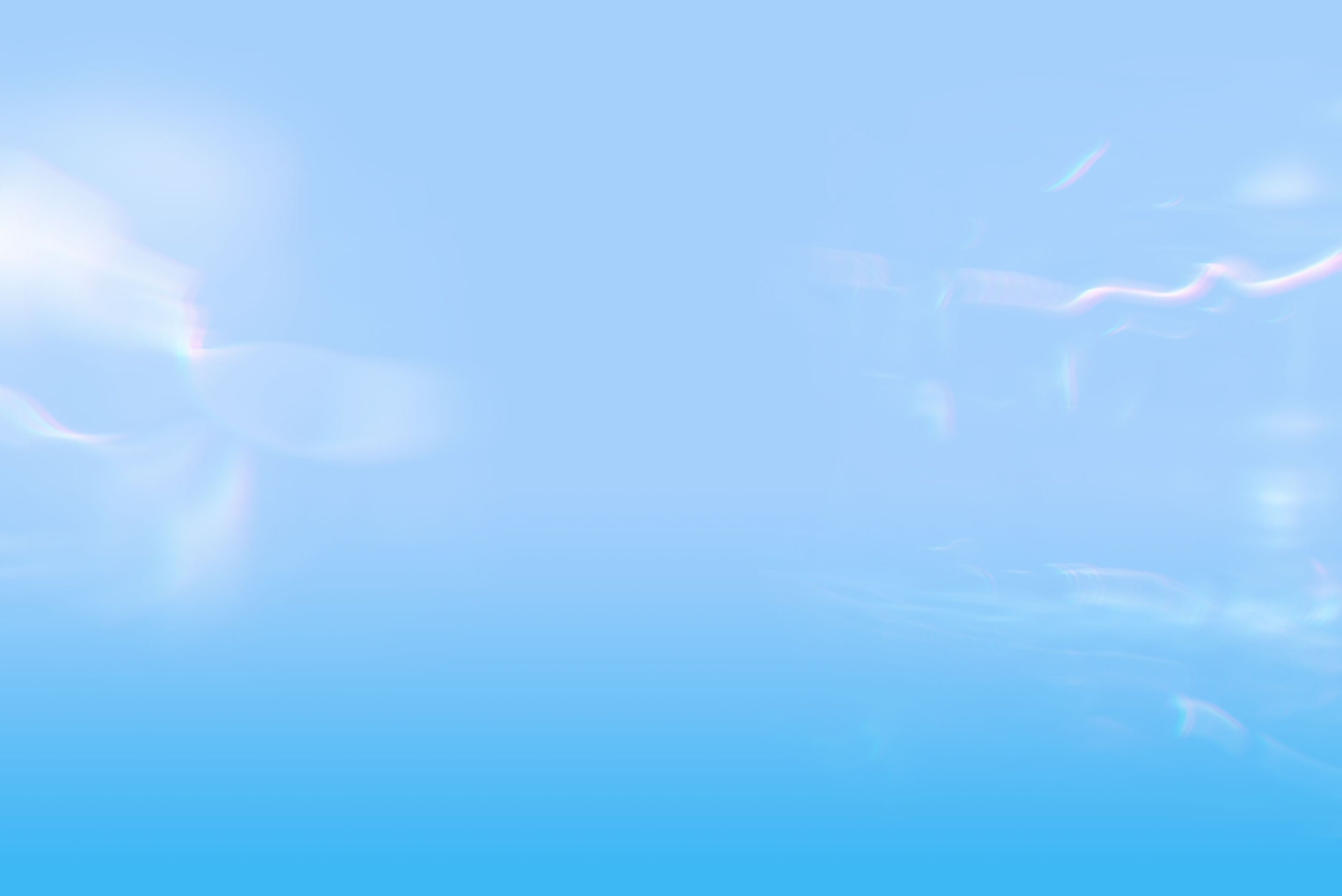
Solidarity Engineering distributing hand sanitizer and soap at a migrant camp on the Mexico-U.S. border.
Photo by Solidarity Engineering
mutual aid
OUR CRISIS RESPONSE PRODUCT DONATION PROGRAM
-
Total Units of 4 oz. Soap Donated: 30,528
Total Units of Hand Sanitizer Donated: 44,064
Total Units of 1 oz. Toothpaste Donated: 2,592
Total Toothpaste Xela Sample Packs Donated: 2,750
Total Projects Supported: 75
Total States / Locales Reached: 25
Total # of States / Locales: 25(Including: Arizona; California; Canada*; Colorado; DC; Florida; Idaho; Kentucky; Louisiana; Massachusetts; Maryland; Maine; Michigan; Montana; New York; New Jersey, Ohio; Oregon; Pennsylvania; Puerto Rico*; Rhode Island; Tennessee; Texas; Virginia; West Virginia)
Dr. Bronner’s Mutual Aid Product Donations began as our Covid-19 product donation program. Through this effort, we continue to distribute Organic Hand Sanitizer and Pure-Castile Soap and other products to efforts supporting community members in need of hygiene products. This work began in March 2020 and was inspired by a request from Urban Justice’s Safety Net project in New York City, when crucial hygiene supplies were becoming increasingly unaffordable, or unavailable altogether.
Since then, we have donated products to projects supporting communities across the U.S. and in Canada, including seniors, people experiencing homelessness, frontline workers, and low-income communities through a variety of nonprofit and grassroots outreach and direct-service efforts in the form of community pantries, hygiene kits, shower trailers, free stores, shelters, and outreach vehicles, just to name a few.
Increasingly we have focused this program on supporting decentralized mutual aid projects that have launched across the country in response to the pandemic and other crises. The beauty of mutual aid projects is that they can be agile—and are able to shift focus to where community support is most needed at any given time. In 2020 thousands of mutual aid projects and networks emerged around the world.
Mutual aid projects are a form of social participation in which people voluntarily take responsibility to care for one another and improve social conditions. The concept of mutual aid has existed for thousands of years and has been practiced by many communities, especially communities of color and other historically marginalized groups. Trans activist and author of the book Mutual Aid: Building Solidarity During this Crisis and the Next, Dean Spade explains:
“Mutual aid projects, in many ways, are defined in opposition to the charity model and its current iteration in the nonprofit sector. Mutual aid projects mobilize lots of people rather than a few experts; resist the use of eligibility criteria that cut out more stigmatized people; are an integrated part of our lives rather than a pet cause; and cultivate a shared analysis of the root causes of the problem and connect people to social movements that can address these causes.”
Mutual Aid is first and foremost about community members voluntarily looking after each other. We are proud to continue this important program that allows our products to bolster the efforts of projects that work directly to meet needs on the ground across the US and beyond.
Photo by Solidarity Engineering
Photo by Solidarity Engineering

